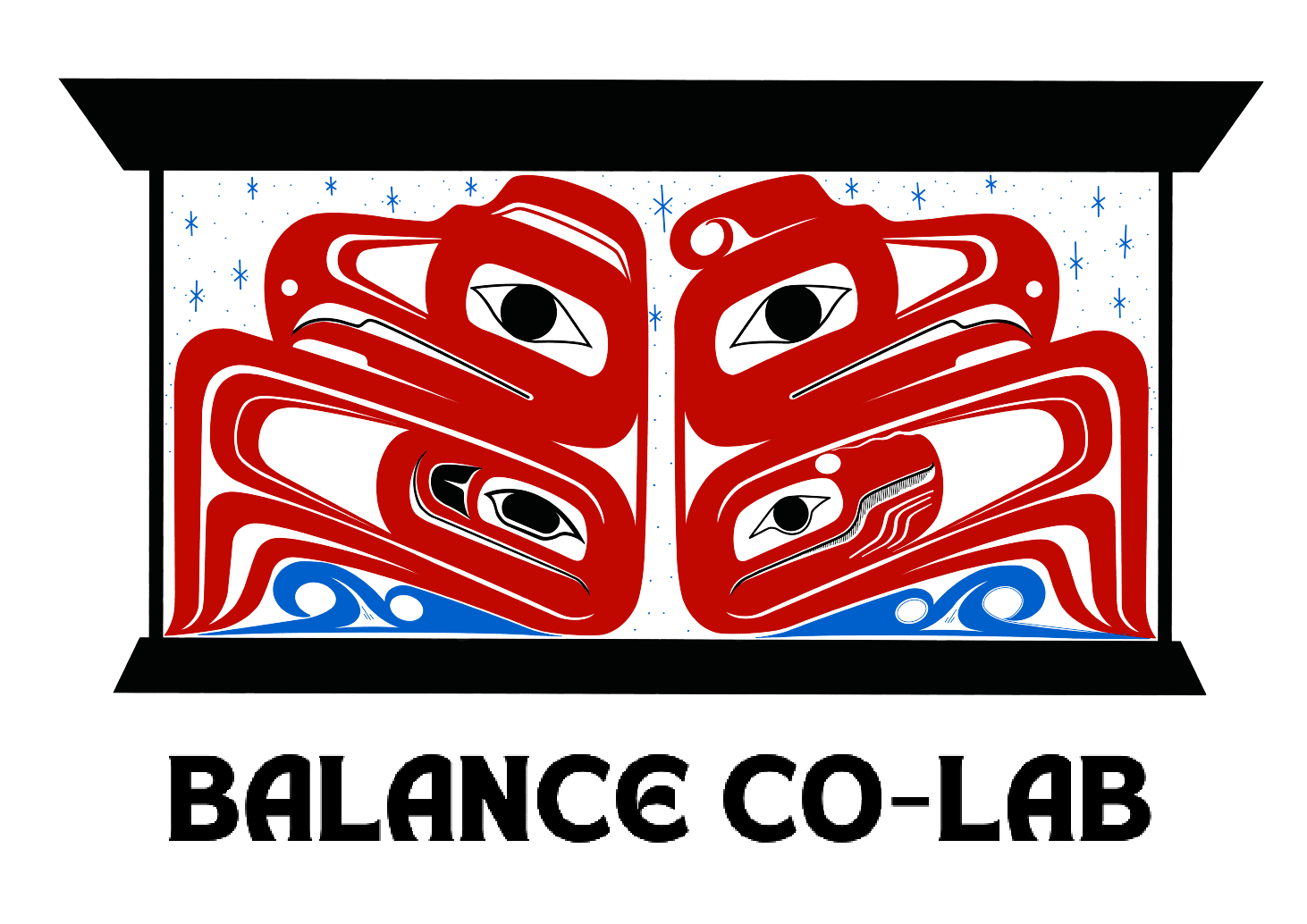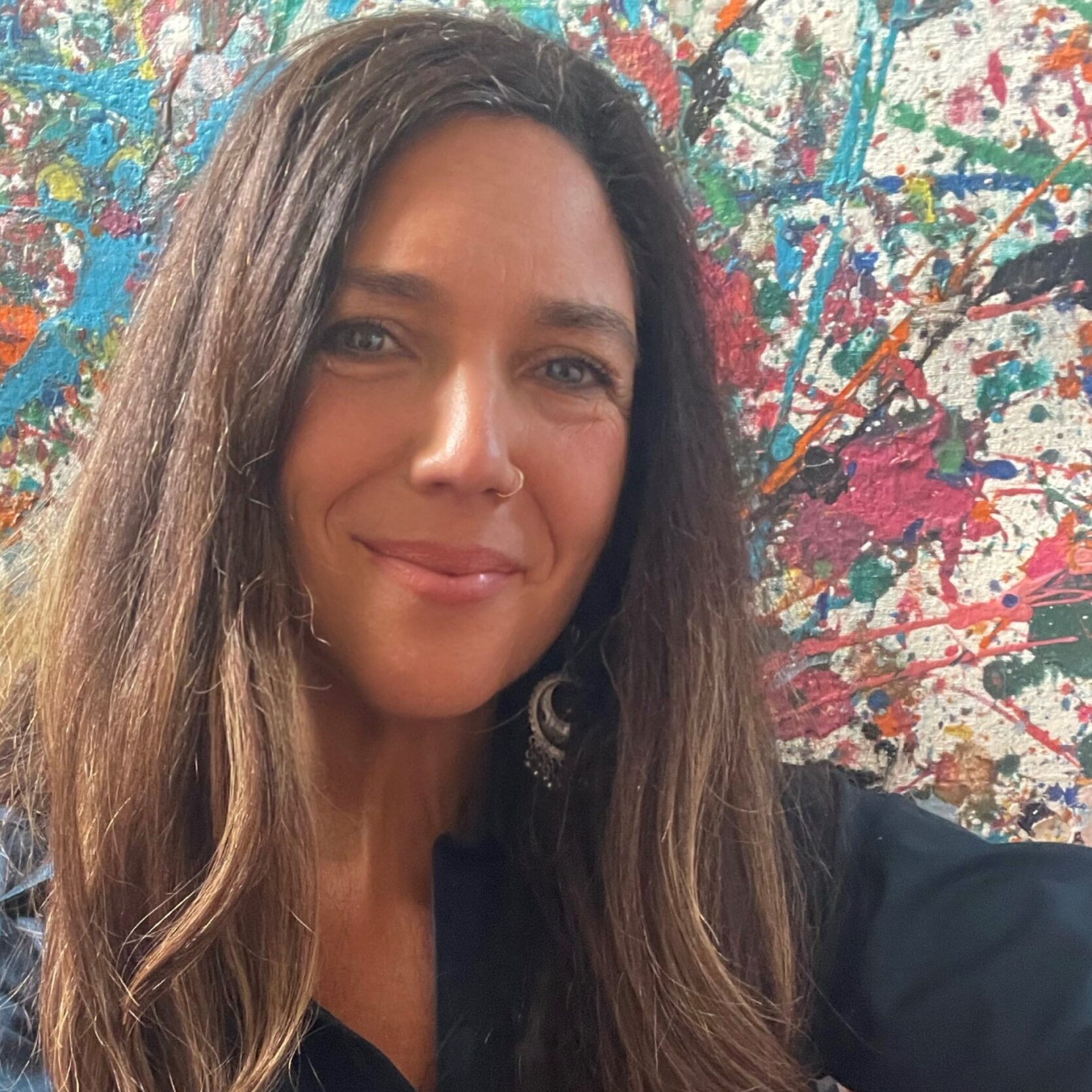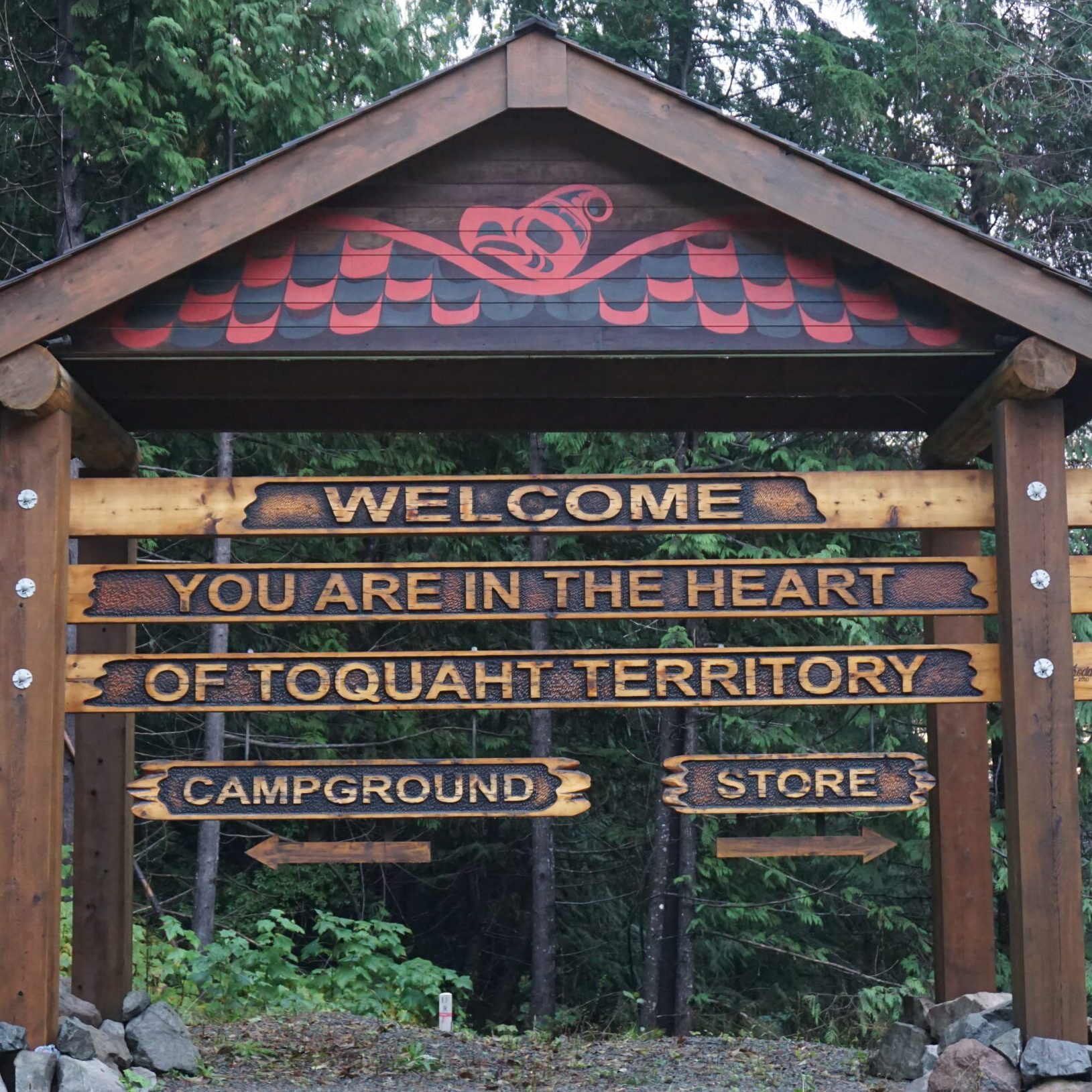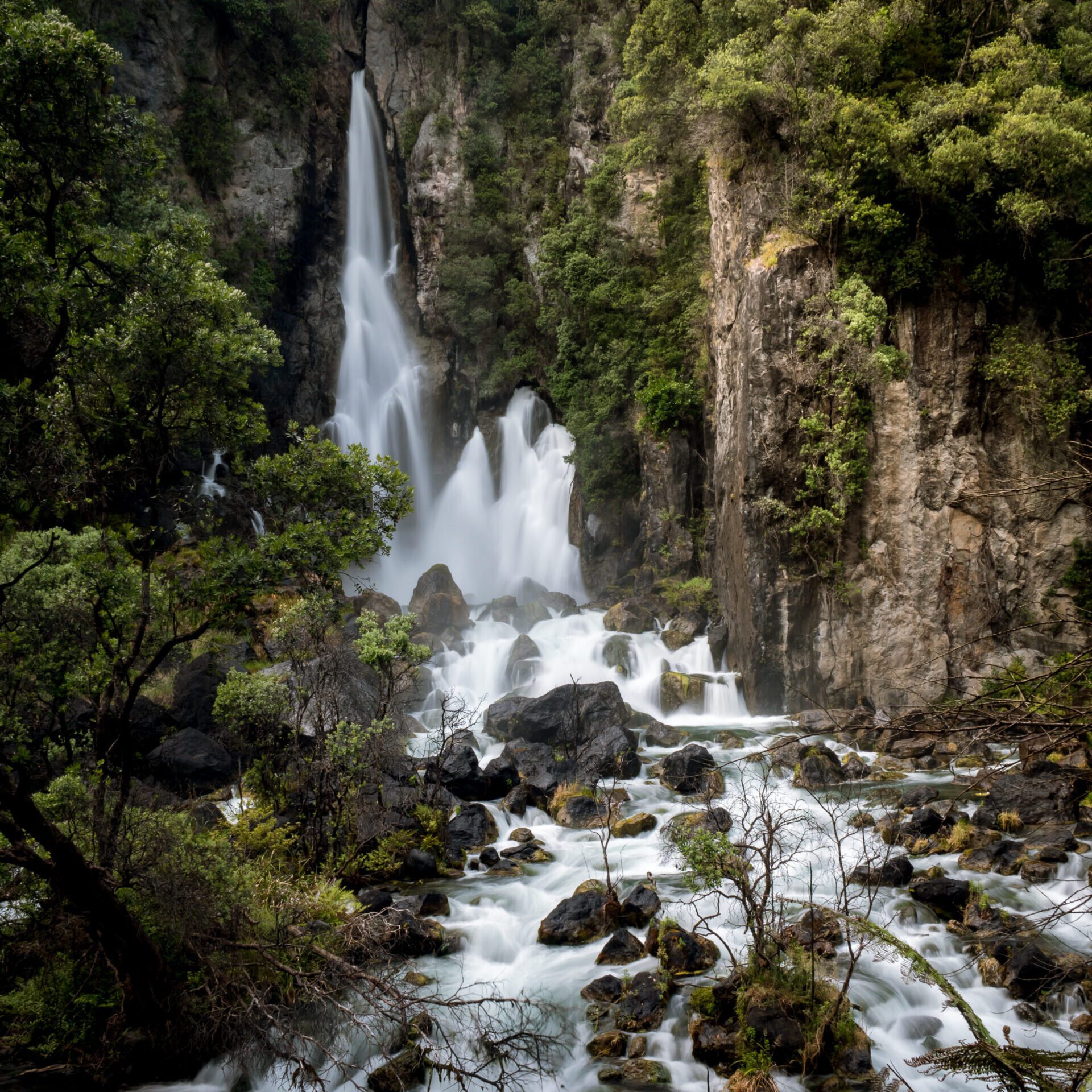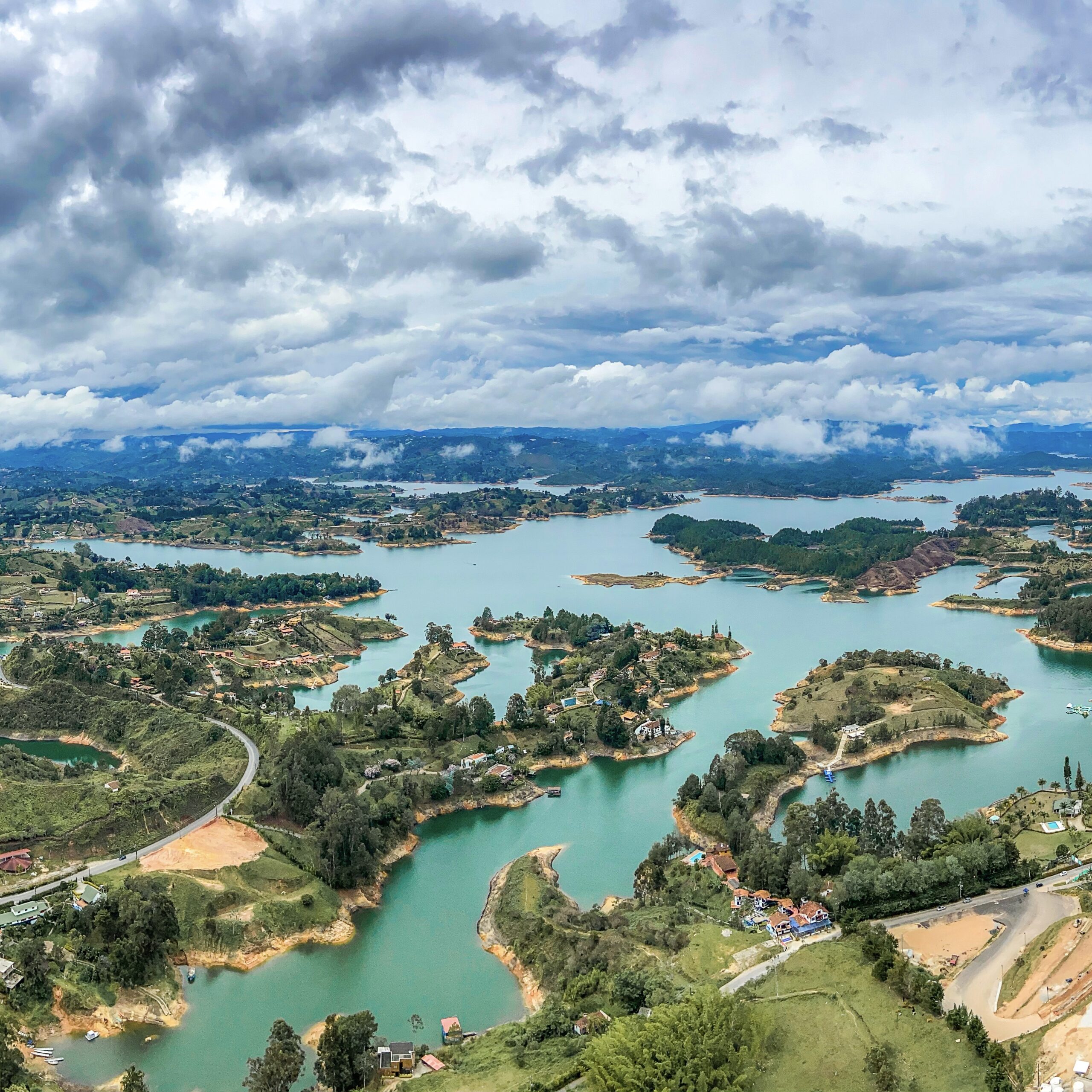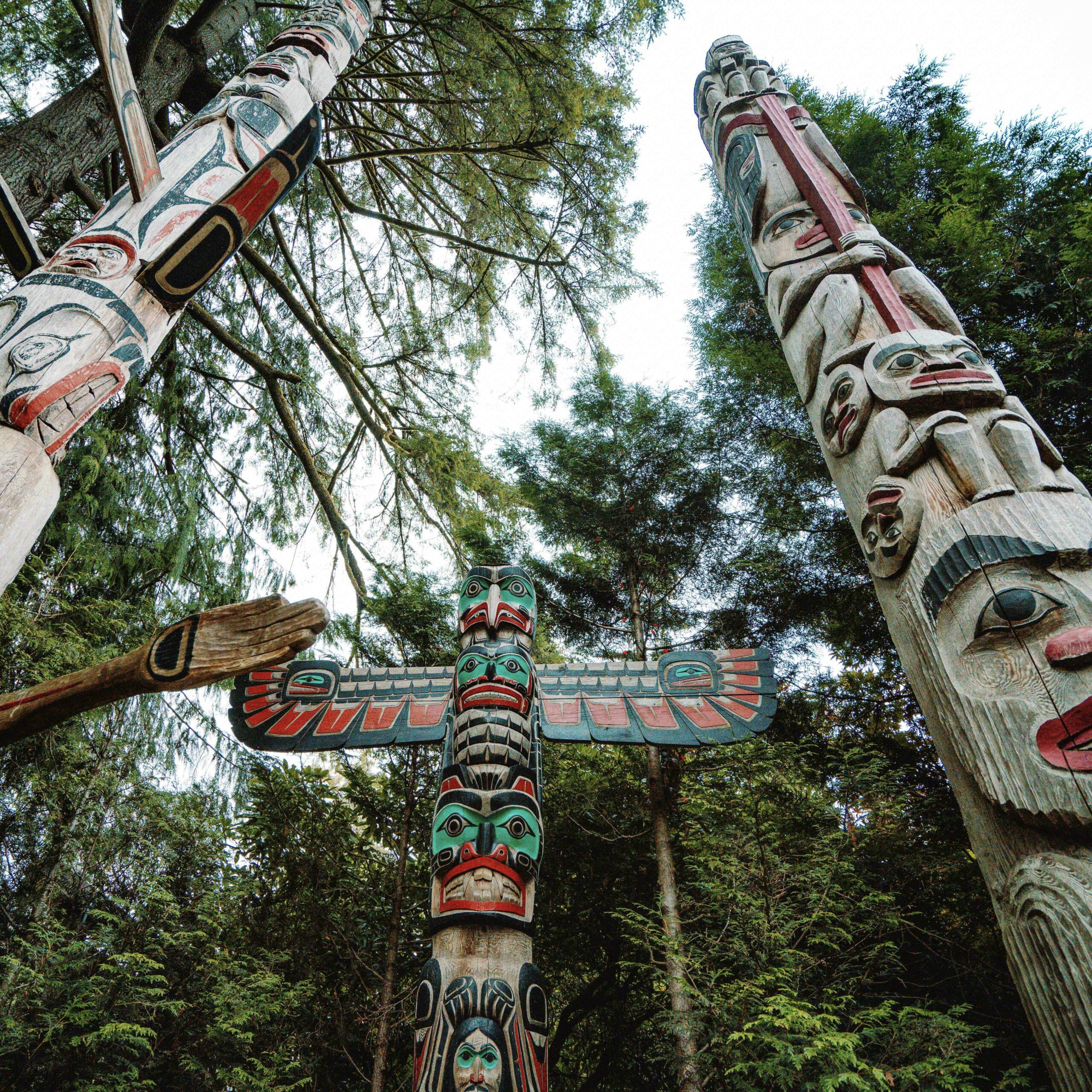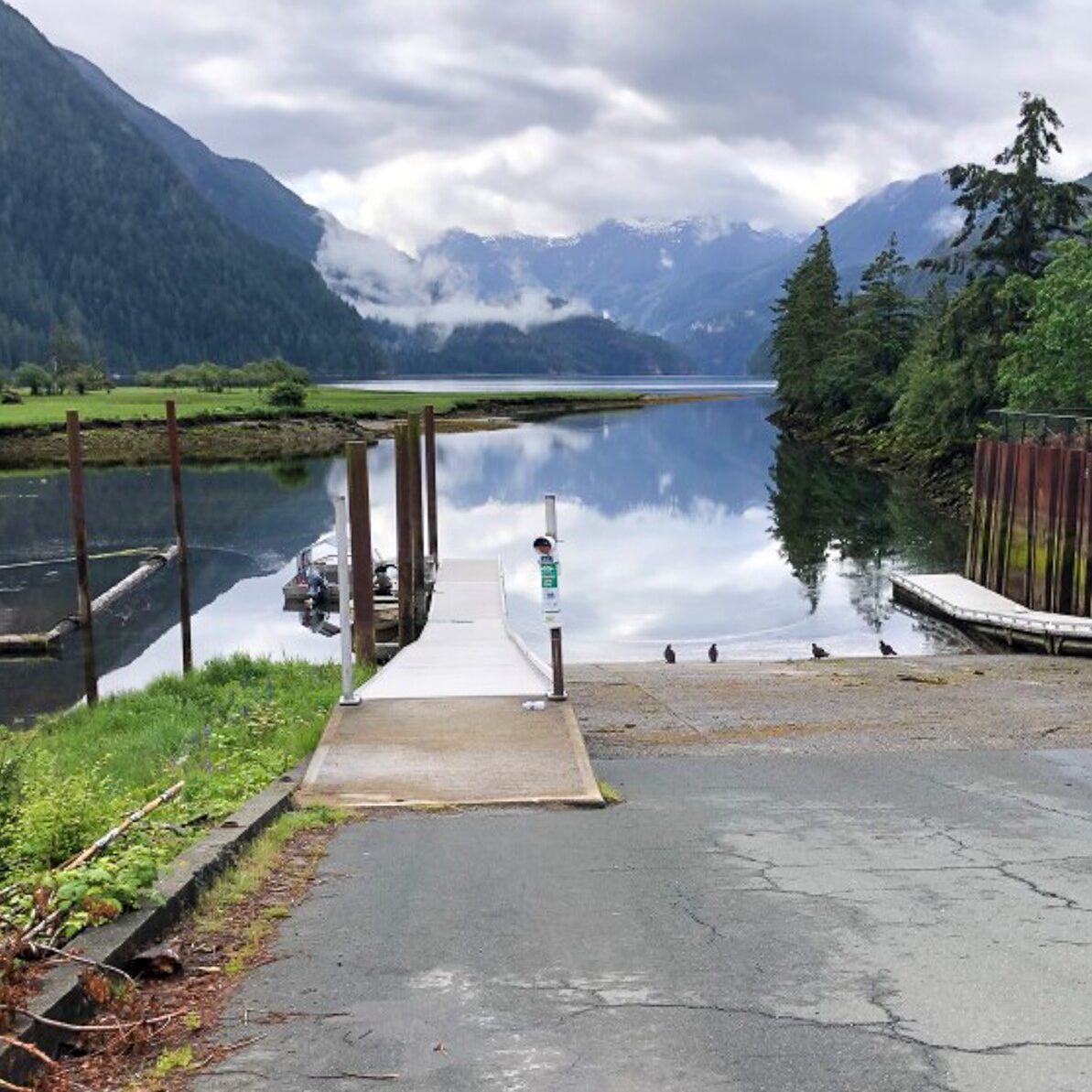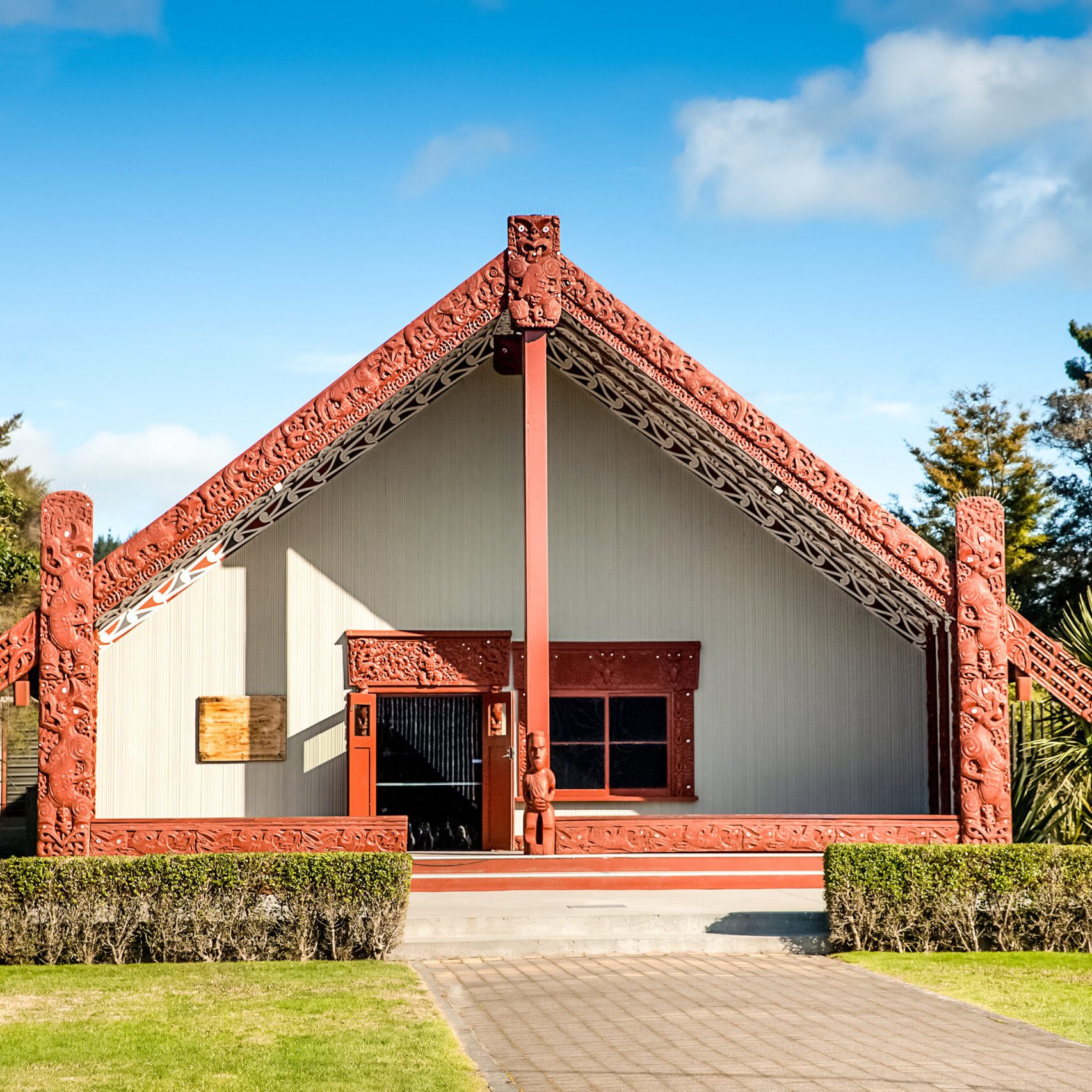Project Team
The success of our projects relies on collaboration among a network of community- and university-based partners and individuals who bring different expertise and knowledge to the program.
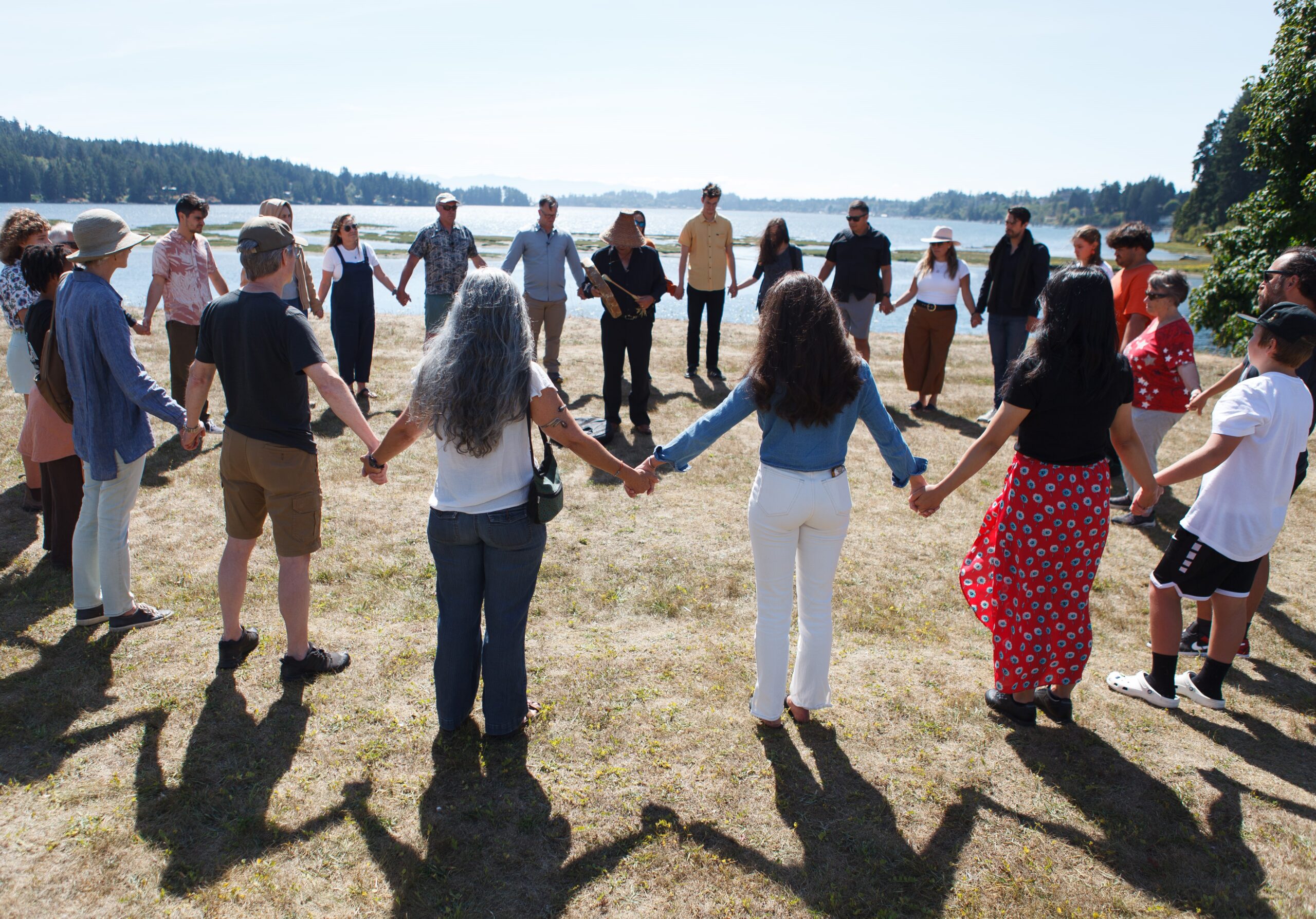
Value of a Collaborative Approach
We pull together resources from our extensive, transdisciplinary network to customize solutions based on the needs and objectives of Indigenous partner organizations.
Program Team
Our Program Team includes a full-time Program Manager, three part-time Research Fellows, three part-time Research Associates and a part-time administrative and research support person who share a common purpose of contributing to meaningful projects that support environmental sustainability and advances Indigenous self-determination, community capacity and well-being.
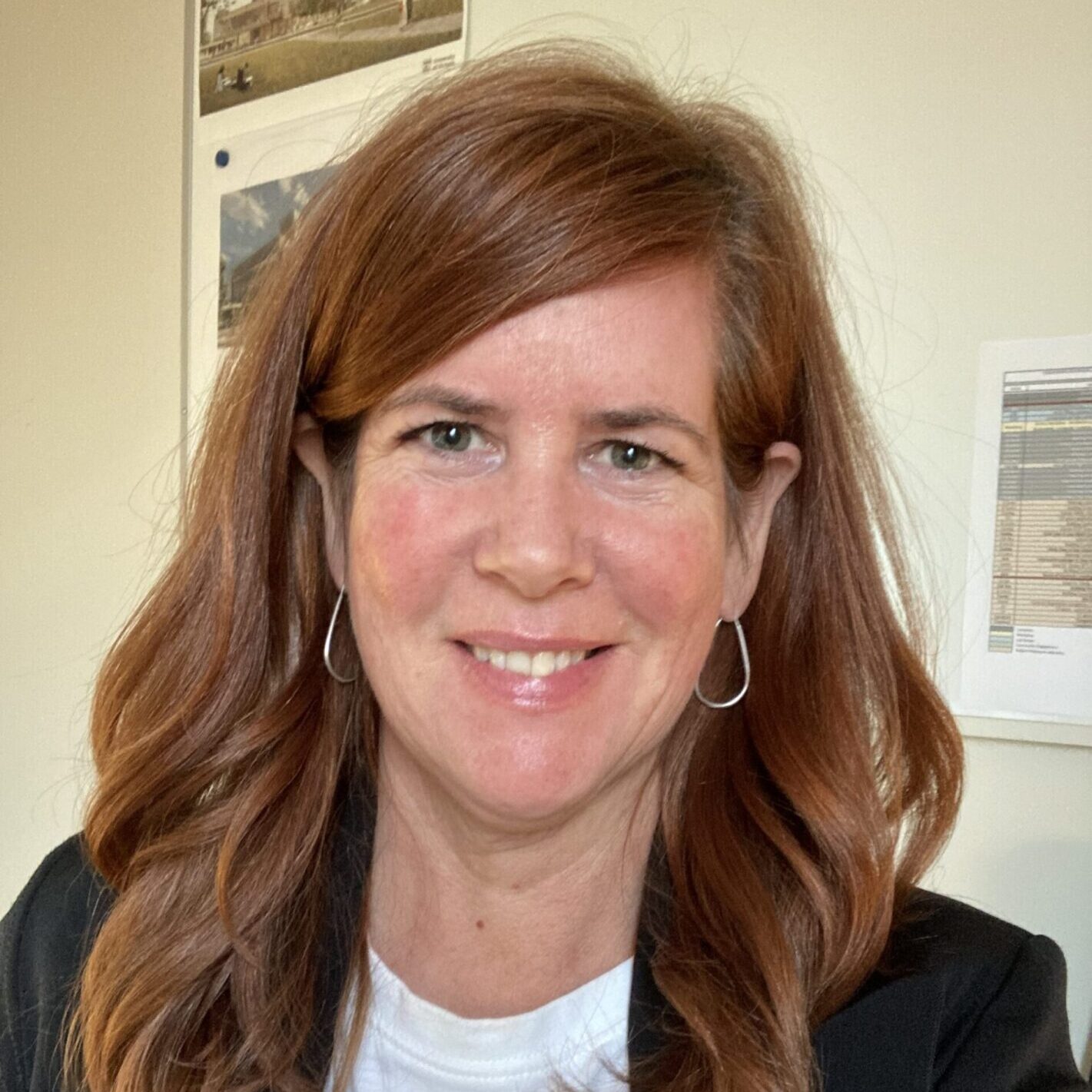
Catherine Schafers (she/her)
Program Manager
Catherine is delighted to join the Balance Co-Lab team in her role as Program Manager. A settler of Irish and Scottish ancestry, she is grateful to reside and work on the traditional, ancestral, and unceded lands of the Lək̓ʷəŋən and WSÁNEĆ Peoples. With a background in business and project management, Catherine brings a wealth of knowledge and experience from her work on sustainability focused development projects in Canada and Mexico. Her proven ability to work collaboratively, creatively, and generously with all project participants transitions well and aligns with the goals of the Balance Co-Lab. Catherine strives to be an ally to First Nations through continuous learning, listening, and advocacy.
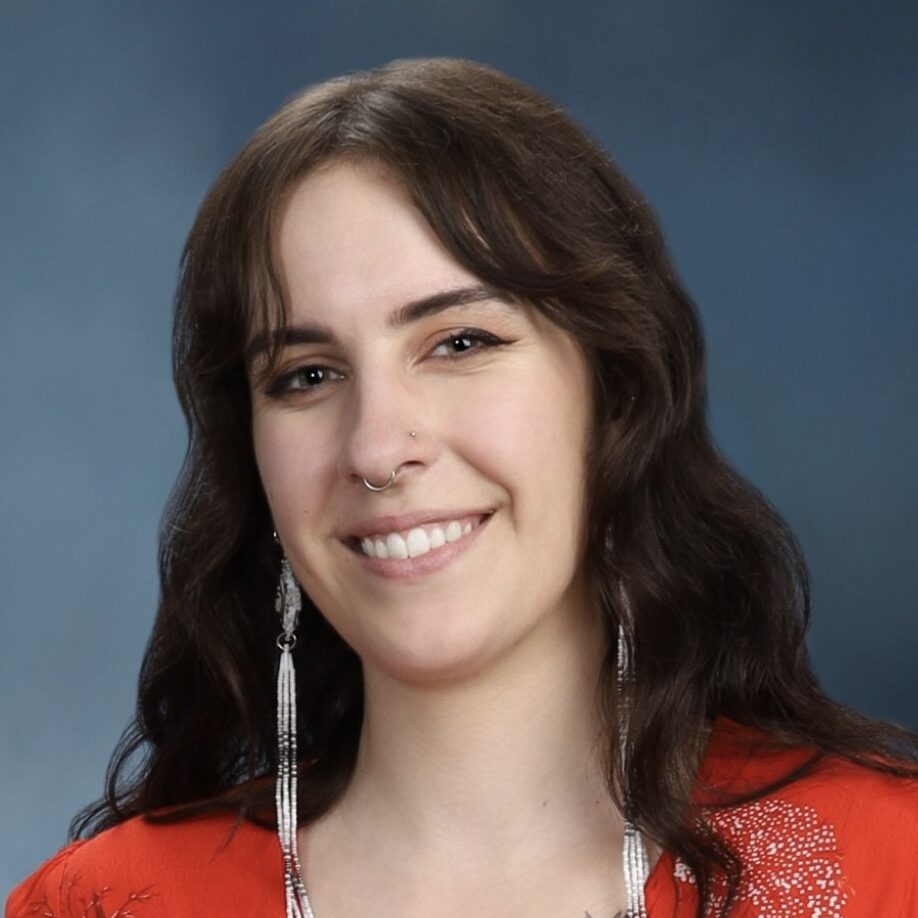
Justine Keefer (she/her)
PhD Fellow
Justine Keefer is a Dutch settler and a PhD candidate at the University of Victoria in the School of Environmental Studies Political Ecology lab. She was born in Treaty 2 territory and has spent the majority of her life living on Treaty 6 and 7 lands. She now resides on the unceded lands of the WSÁNEĆ peoples. Justine has experience working and engaging with provincial, federal and Indigenous governments from her time as a consultant with Calliou Group and as a policy analyst at the Metis Nation of Alberta. Her interests lie in understanding how cumulative effects assessment can be used as a tool to protect Nations rights.
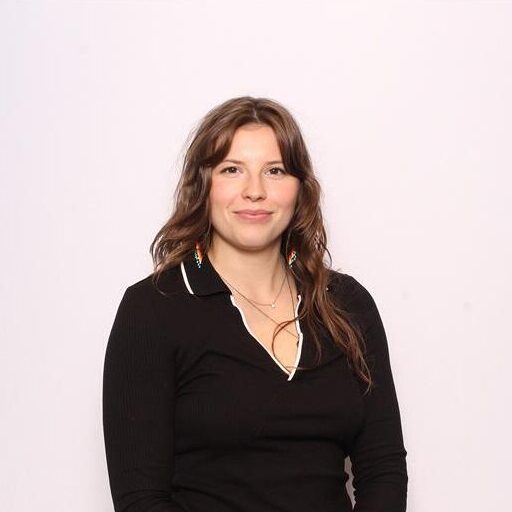
Sydney Wanchulak (she/her)
Research Fellow
Sydney Wanchulak is a Cree Métis and Ukrainian from Treaty 6 territory in Alberta and a member of the Métis Nation of Alberta. She is currently working on her MBA at Gustavson School of Business at the University of Victoria. She has worked in the construction industry for a decade, ranging from onsite positions to Sustainability Manager. She has had the honour to lead corporate sustainability strategies, operations, and reporting, materiality assessments, and greenhouse gas accounting with a key focus on building relationships across organizations and industries. The values that lead her work are building connections, sharing knowledge, and having fun. Her curiosity lies at the intersection of sustainability, Indigenous knowledge and ways of being, and economies. Sydney thinks of the work she does as generational, and hopes to leave the world better than when she came into it.
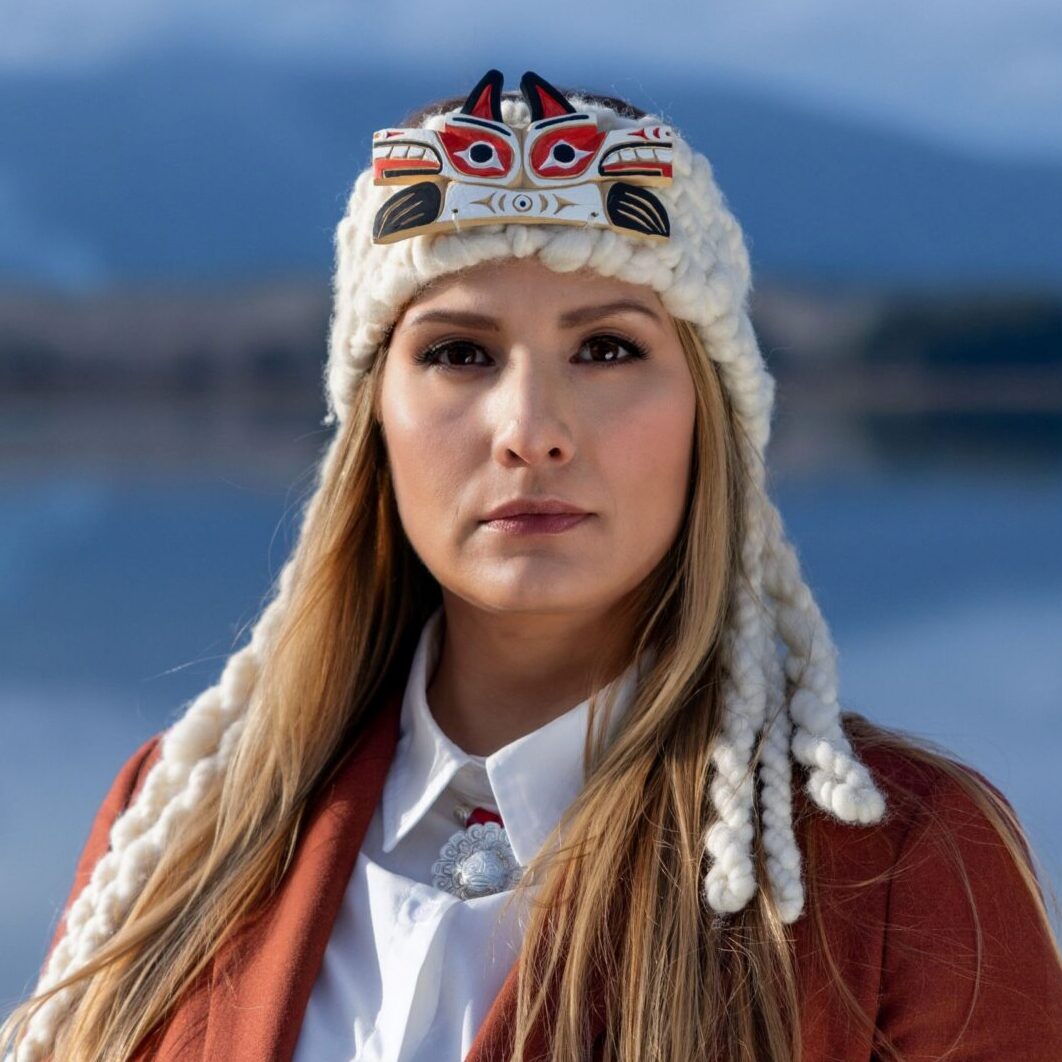
Tricia Thomas (she/her)
Research Fellow
Tricia is an award-winning Indigenous entrepreneur, facilitator, speaker, consultant, and proud member of the Halalt (Xeláltxw) Nation on Vancouver Island where she lives and raises her two children. She is dedicated to advancing Indigenous self-determination through community engagement, strategy, facilitation, and implementation.
With an MBA in Sustainable Innovation from the University of Victoria, Tricia has contributed to significant projects, including Indigenous Early Learning in Child Care in BC, Regional Energy Resource Tables, and the BC Climate Aligned Energy Framework. She is the Founder and Principal of Tumuxw Communications, offering consultation on First Nation Rights and Title issues, and the Creative Director of Salish Eye Productions, producing award-winning Indigenous media.
As an Assistant Teaching Professor at UVic’s Gustavson School of Business, Tricia shares her knowledge on Indigenous entrepreneurship and collaboration with First Nations. She has been honoured with several awards, including the MBA Leadership/Citizenship Award.
At Balance Co-Lab, Tricia supports the development of Indigenous decision support and impact assessment systems, aiming to foster sustainable development and cultural integrity. She is grateful for the opportunity to contribute her expertise in facilitation, engagement, and sustainable innovation strategy to the team.
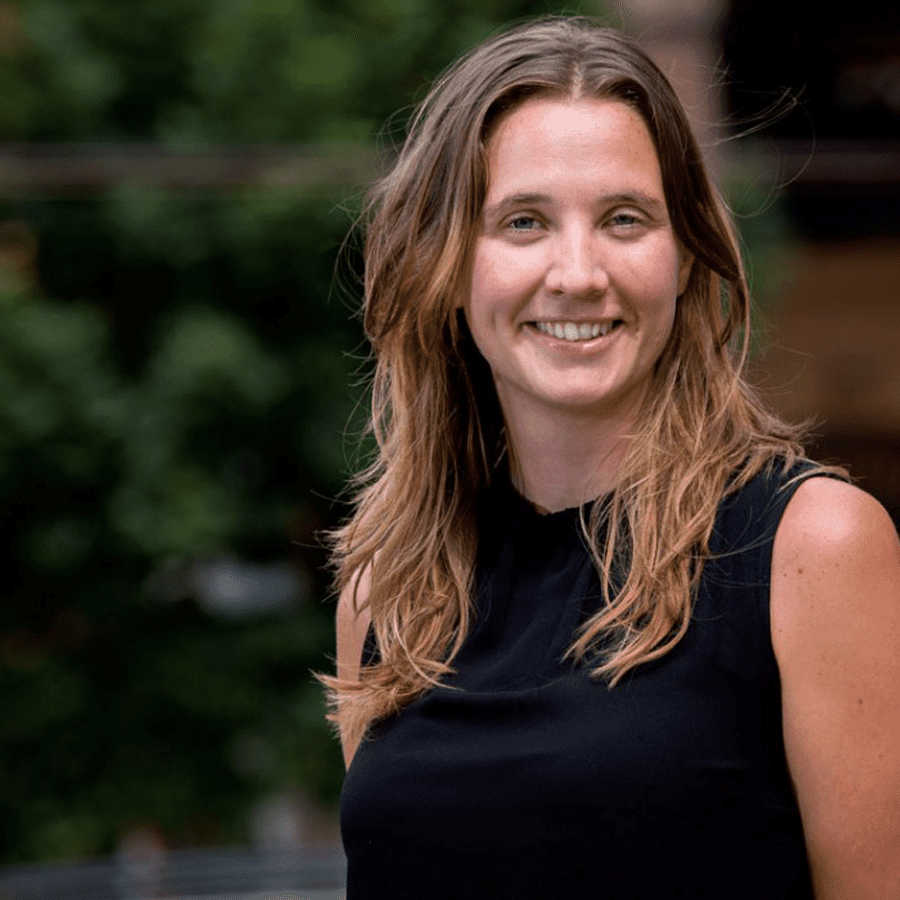
Tara Mahoney
Research associate
Tara Mahoney is a researcher based on the unceded traditional territories of the Coast Salish peoples of the xʷməθkwəy̓əm (Musqueam), Skwxwú7mesh (Squamish), and Səl̓ílwətaɬ (Tsleil-Waututh) Nations, also known as Vancouver, BC. She has extensive experience in designing community research programs and leading research projects that bridge academic and community-based knowledge. With over 15 years of experience in community organizing and a PhD in Communication from Simon Fraser University, Tara has published widely on community-engaged research and public engagement with climate issues.
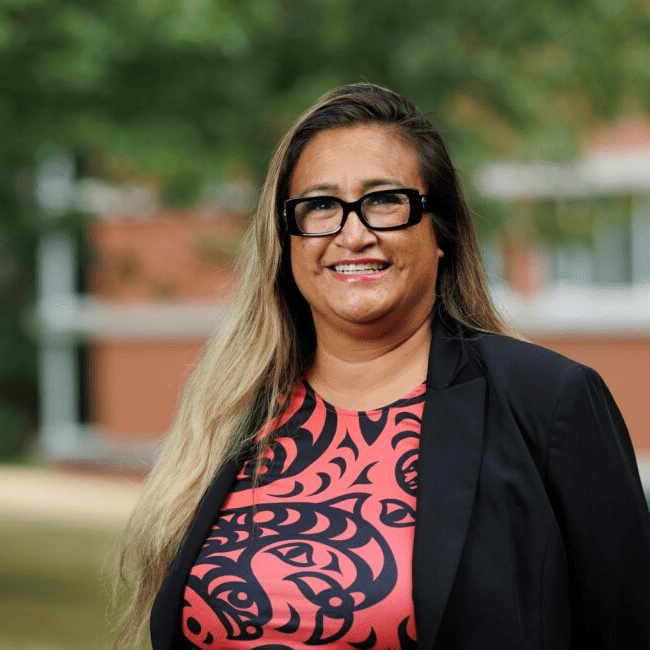
Sherry Mattice
Research associate
Sherry taʔacinum Mattice is a member of the Mowachaht/Muchalaht First Nation located in the Nuu-chah-nulth territory on the west coast of Vancouver Island BC and is claimed by hereditary chief Nathan George. taʔacinum is the first person in her Nation to receive a Doctorate of Business Administration (specializing in Indigenous entrepreneurship and leadership). taʔacinum is passionate about language revitalization and currently is learning the northern Nuu-chah-nulth dialect. Sherry is a certified cultivating safe spaces (CSS) facilitator and uses CSS in her teaching practice.
Sherry has effectively collaborated with various stakeholders, including educational staff, community leaders, government officials and First Nation communities, to build strong connections and trust. This enables her to facilitate sharing knowledge, and co-create strategies and solutions tailored to the specific challenges and opportunities faced by Indigenous communities. A key aspect of her expertise is her ability to integrate traditional Indigenous knowledge and practices into the fabric of teaching, thus facilitating culturally relevant and innovative solutions. Sherry emphasizes decolonized practices, to enable participants to engage with Indigenous perspectives authentically and meaningfully.
Sherry received her traditional name taʔacinum (translates to big house beam or one who holds up the community) at a potlatch hosted by Late Ben Jack. taʔacinumhas been working in education for over 7 years as an advisor, instructor and mentor. taʔacinumis an assistant teaching professor for the Gustavson School of Business. Throughout her education journey she has contributed to mentorship and continues to be a mentor. taʔacinumis the oldest of 4 siblings with 3 children and one grandchild. Her husband Danny is from the Klahoose First Nation. Tyeesum’s mother survived the Christie and Alberni Indian residential school.
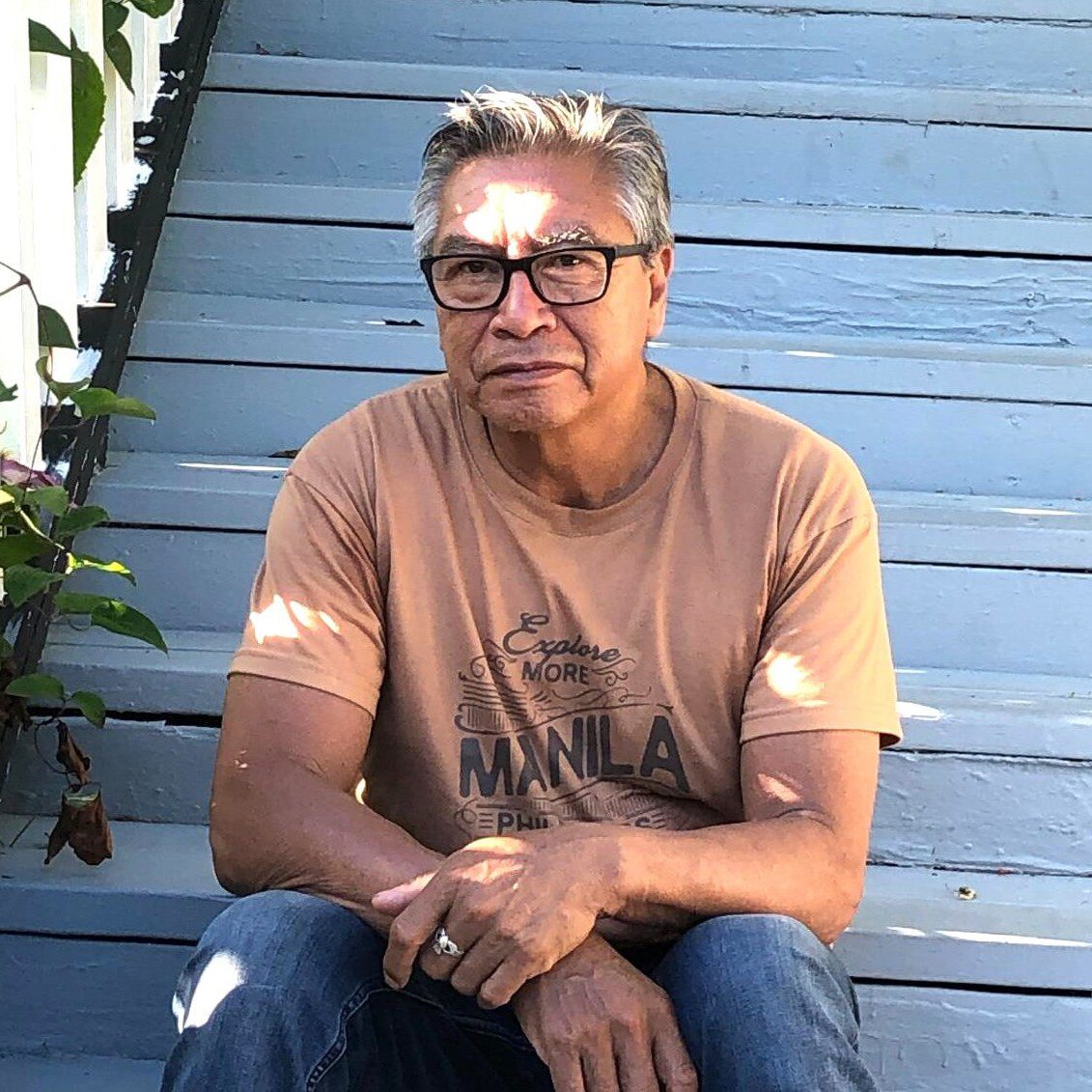
Lorenzo Magzul
Research associate
Lorenzo Magzul, a Kaqchikel Mayan from Guatemala, now lives and works on the traditional territories of the Lək̓ʷəŋən and WSÁNEĆ Peoples. With an academic background spanning Economics, Environmental Studies, and Integrated Studies of Land and Food Systems, he brings a wealth of experience in collaborating with Indigenous communities in Canada and Guatemala. His work focuses on advancing community development, strengthening food sovereignty, and fostering climate adaptation strategies that are both culturally informed and locally driven.
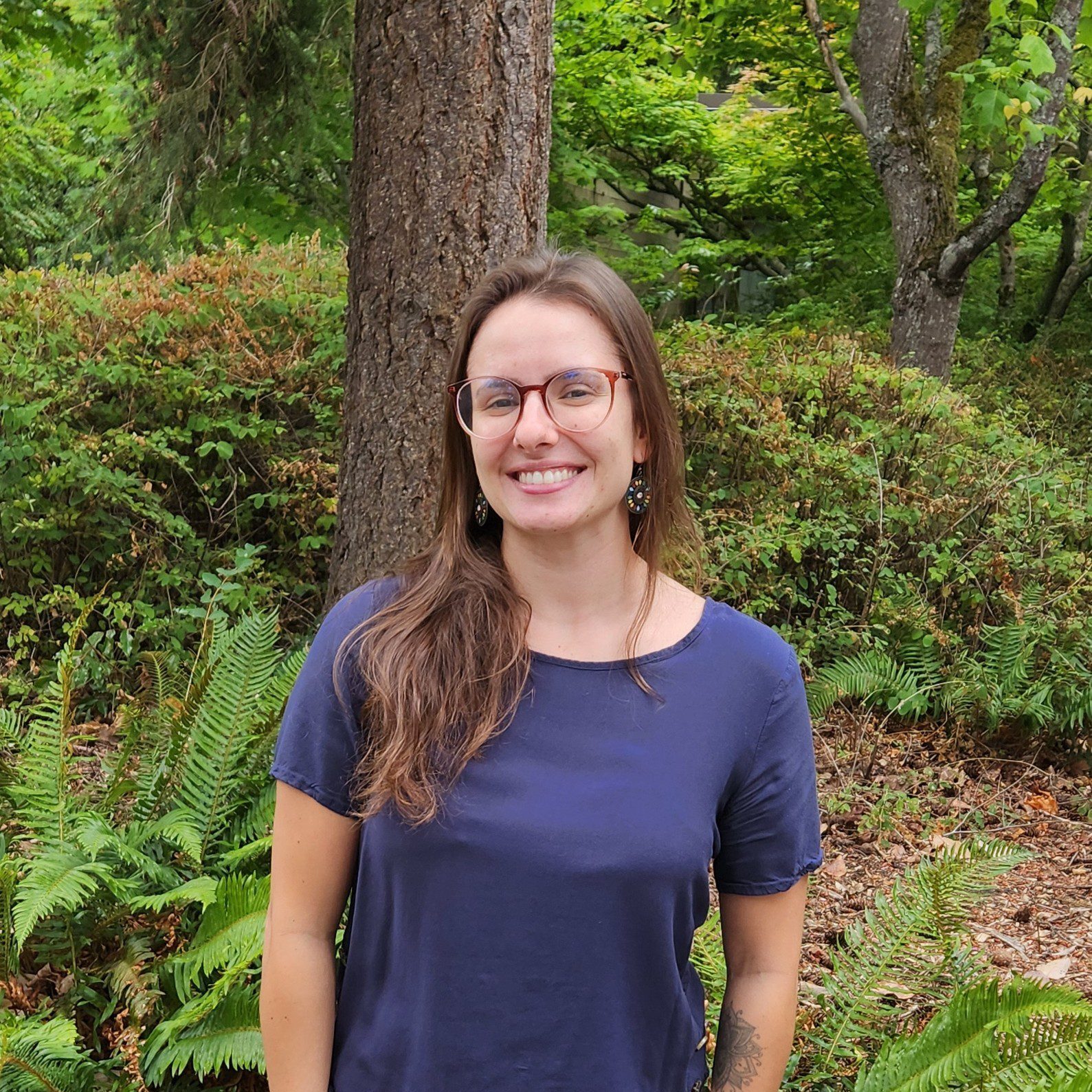
Marcela Faralhi Daolio (she/her)
Administrative and research support
Marcela is a Brazilian biologist with Italian, Syrian and Tupi-Guarani ancestry. Marcela is passionate about the marine environment and its ecological, spiritual and political importance to the coastal communities. She is currently working on her master’s thesis at the University of Victoria and has the privilege of working with Indigenous communities from what is known as British Columbia on adaptation planning and cumulative effects modelling of their food system. She is intersted in knowledge translation tools and integrative methods for conservation within communities and their marine ecosystems. She joins the team to work on the administrative organization background of the project and research support when needed.
University Partners
5 university-based partners in Canada, Colombia and Aotearoa (New Zealand) come together to co-create knowledge across academic disciplines and share decision-support processes for sustainable development in Indigenous communities.
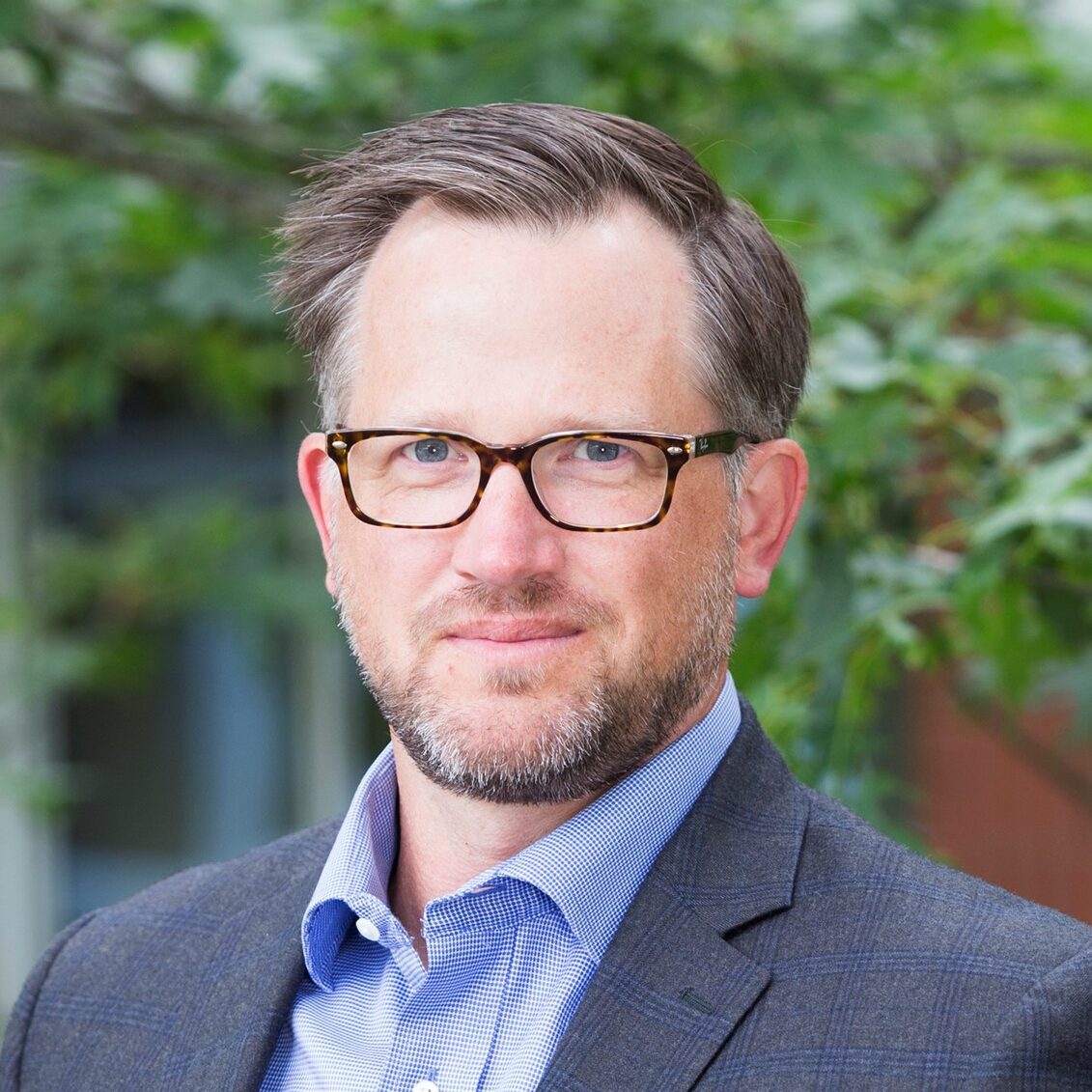
Matt Murphy (he/him)
associate professor
gustavson school of business
university of victoria
Matt Murphy, an associate professor of sustainability and strategy at the Gustavson School of Business at the University of Victoria, teaches and carries out research in the areas of sustainability and social entrepreneurship. Matt is a settler of Irish, English and Scottish decent, and a 7th generation Texan raised on traditional territory of the Comanche and Kiowa Peoples. He currently resides on the traditional, ancestral, and unceded lands of the Lək̓ʷəŋən and W̱SÁNEĆ Peoples. Through collaboration and community-based action research, Matt works with Indigenous partners to co-develop decision support and (cumulative) impact assessment systems to further self-determination, stewardship, and economic development efforts.
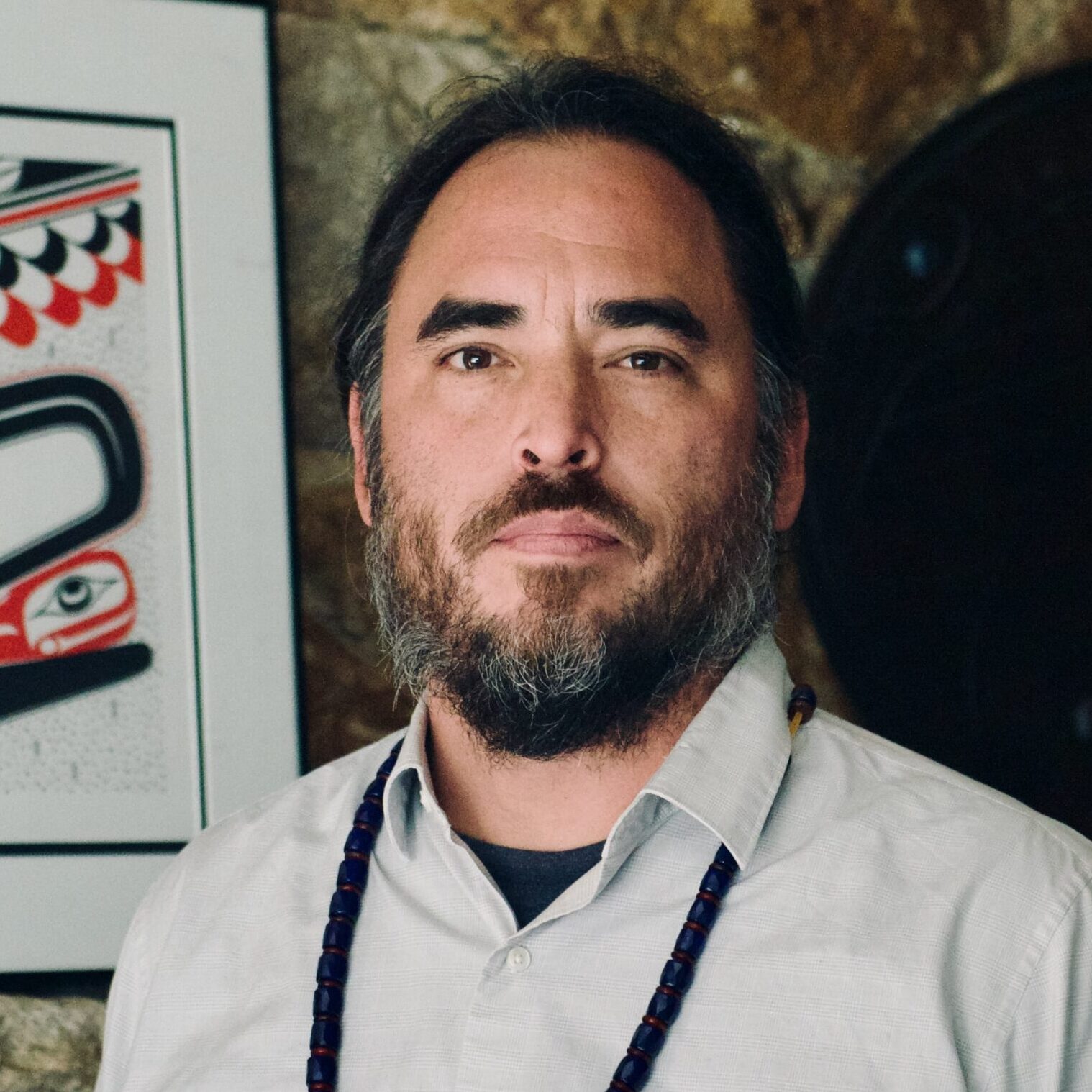
Heynahmeek Johnny Mack (he/him)
assistant professor
peter a. allard school of LAW
the university of british columbia
Dr. Johnny Mack
Assistant Professor
Peter A. Allard School of Law
The University of British Columbia
Heynahmeek Johnny Mack is from the Toquaht Nation (Nuu-chah-nulth) and is Assistant Professor at UBC Allard School of Law. His research investigates the legal relationship between Indigenous and settler peoples in contemporary settler states, particularly Canada, as well as Indigenous constitutionalism, subjectivity, critical theory, and legal pluralism. An impassioned advocate for Indigenous peoples on the West Coast of Vancouver Island, Johnny’s involvement has been both formal, as a policy analyst for Aboriginal organizations, and informal, as a community activist working to create constructive critical dialogue on the subject of contemporary Treaty negotiations.
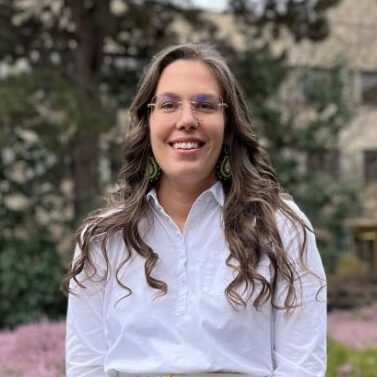
Unxiimtunaat Emily Salmon (she/her)
assistant professor
Beedie School of Business
simon fraser university
Unxiimtunaat Emily Salmon is a Cowichan Tribes citizen and an assistant professor at the Beedie School of Business. Her research explores how stakeholders enhance their well-being through relationships with external firms, particularly within the context of Indigenous communities and extractive projects in Canada. In addition, she investigates efforts to Indigenize business education, aiming to better incorporate Indigenous voices and practices in business classrooms and research. Beyond academia, her professional experience has encompassed various roles supporting Indigenous communities in their self-determination journeys, focusing on economic development, community governance, and human resources management.
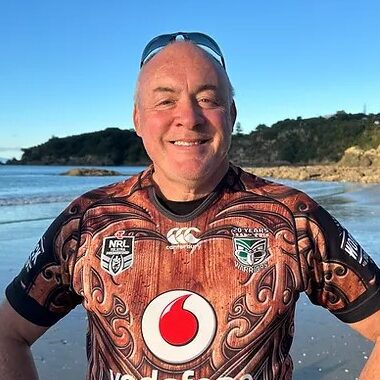
Kēpa Morgan (he/him)
Mahi Maioro Professionals
Aotearoa (New Zealand)
Kēpa’s current research focuses on ecosystem impact assessment and empowering Iwi in relationships with regional and local government.
Kēpa developed the Mauri Model, a decision-making framework that combines a stakeholder assessment of worldviews, with an impact assessment of indicators to determine sustainability and trends over time. This framework uses the concept of mauri as the measure of sustainability, rather than the conventional monetary based assessment.
The Mauri Model measures mauri in four dimensions – environmental wellbeing (Taiao), cultural wellbeing (Hapū), social wellbeing (Hapori) and economic wellbeing (Whānau). Indicators are then chosen that represent the impacts upon mauri for each dimension.
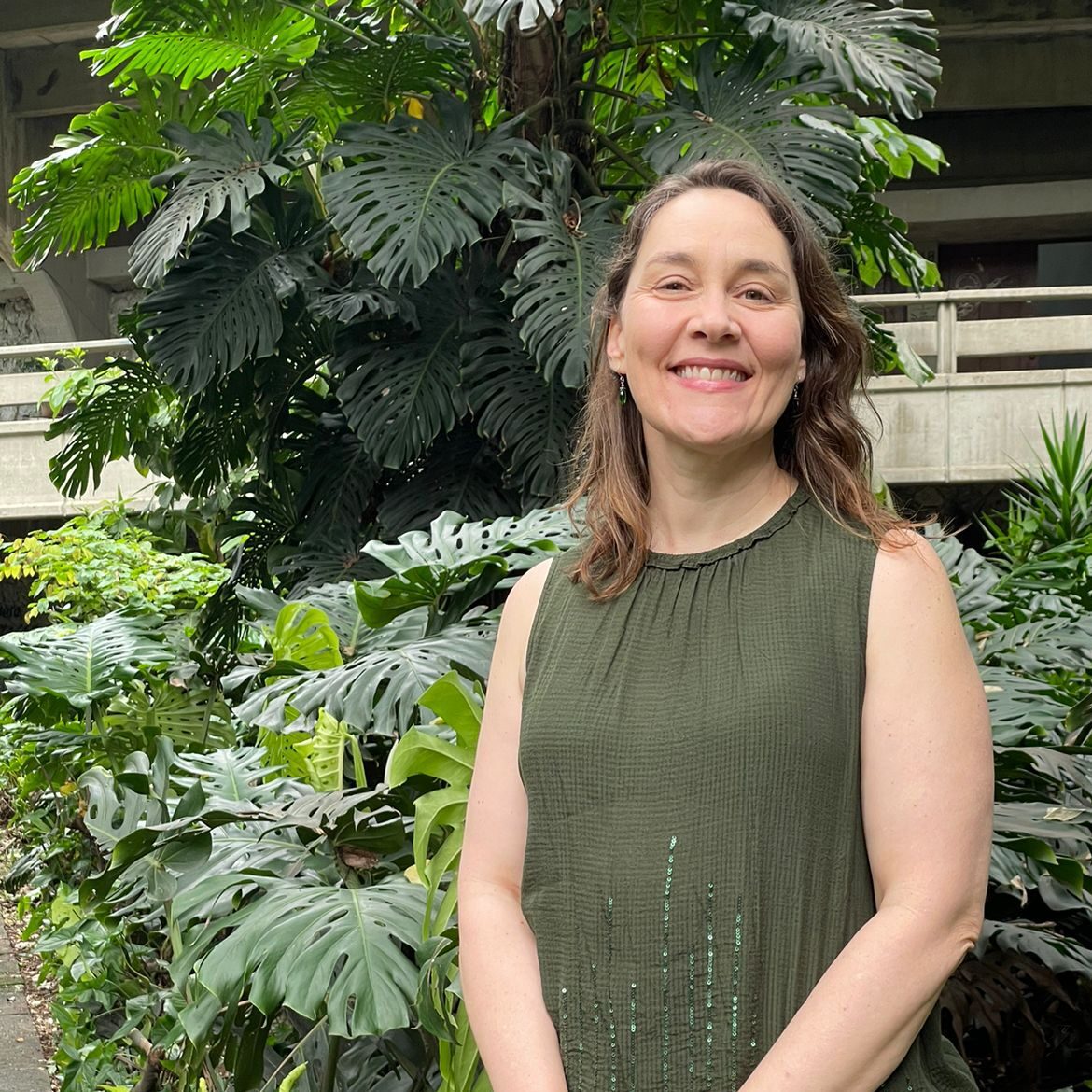
Claudia Puerta Silva (she/her)
Professor, Social Anthropology & Ethnology, University of Antioquia, Colombia
Claudia Puerta Silva
Professor in Social Anthropology and Ethnology, University of Antioquia, Colombia
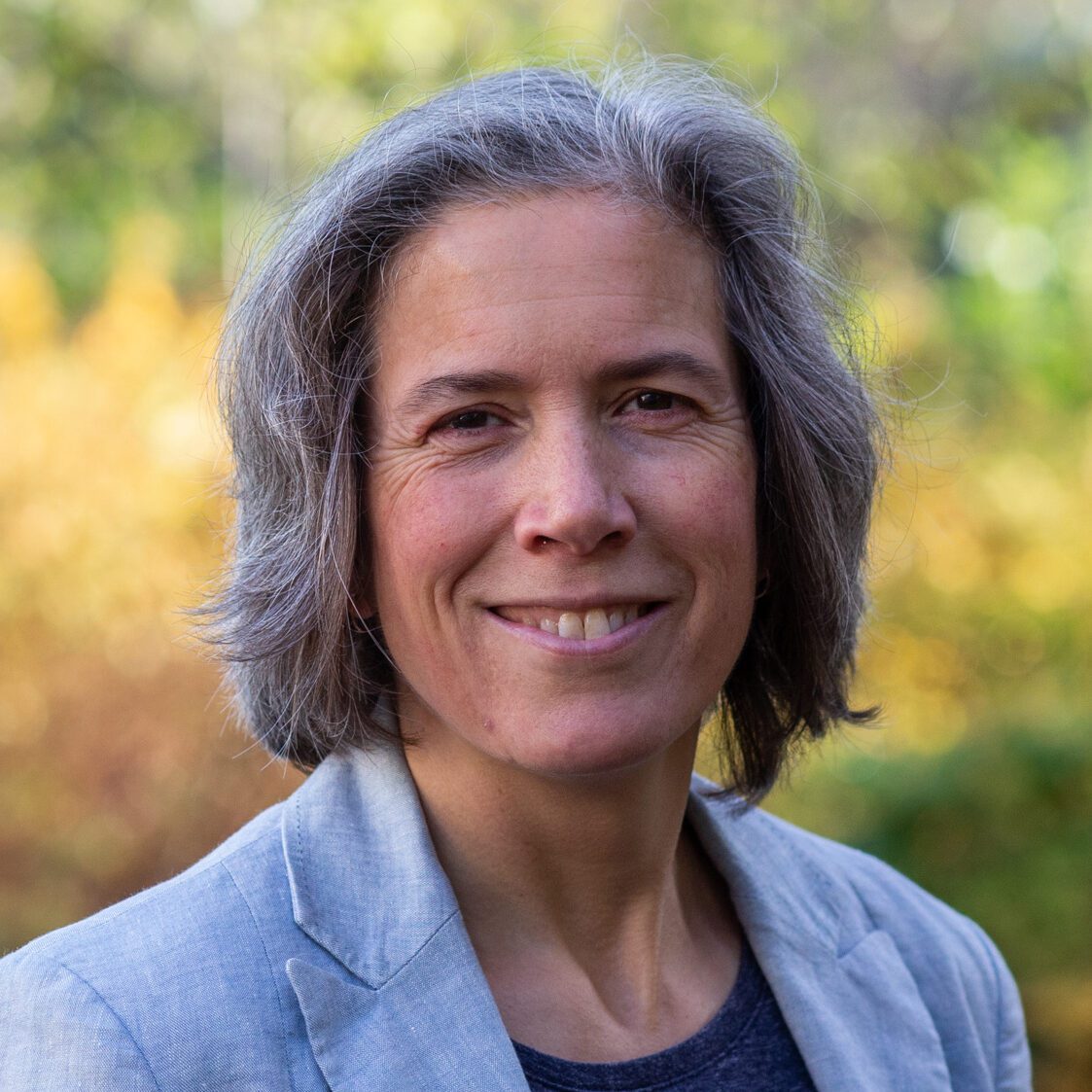
Deborah Curran (she/her)
Professor, Executive Director
Environmental Law Centre, Faculty of Law
University of Victoria
Deborah Curran
Executive Director, Environmental Law Centre, Faculty of Law
University of Victoria
Both in research and practice, Deborah is engaged in the subjects of water and regional or watershed sustainability. Flowing through all of her research is an interest in how legal and policy structures facilitate or impede us from adapting to changing ecological conditions, and shape decision-making through governance processes. Adaptive governance assists us to respond to socioecological conditions, and law – indigenous, customary community, municipal, provincial and federal – plays a foundational role in how well any watershed community responds over time or to specific events.

Crystal Tremblay (she/her)
Director, CIVAL Victoria
University of Victoria
Crystal Tremblay is a social geographer and community-based scholar with interest in the areas of environmental sustainability, participatory resource governance and critical pedagogy. She specializes in using participatory video and arts-based methods for creative citizen engagement and the co-creation of knowledge leading to environmental and social equity. In her capacity as Special Advisor on Community Engaged Scholarship, she provides leadership and research in support of UVic’s community engagement portfolio. She has published widely on topics related to community university research partnerships, training in community-based research, social innovation and participatory policy in water and waste governance.
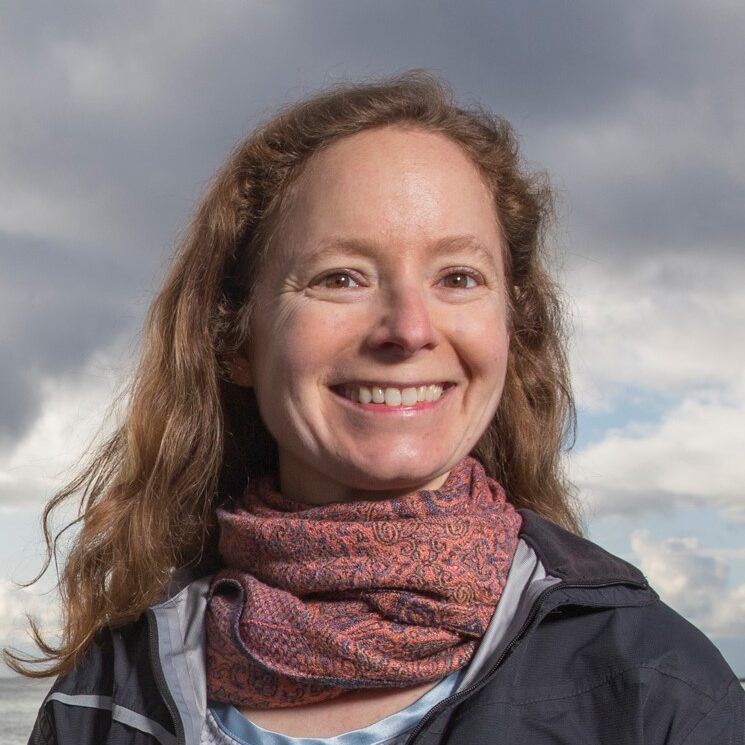
Dr. Natalie Ban (she/her)
Professor & President’s Chair
School of Environmental Studies
University of Victoria
Natalie Ban
Professor and President’s Chair
School of Environmental Studies University of Victoria
Natalie joined the School of Environmental Studies in January 2013. Trained in geography, resource management and environmental studies, Natalie’s research is at the forefront of seeking solutions to contemporary challenges related to marine conservation and fisheries. Her research embraces multiple perspectives, diversities of solutions, and ways of knowing. Her team’s research priorities are shaped by the research needs and opportunities of partners, especially First Nations. Her research team is comprised of researchers who are passionate about making a difference in our oceans and coastal ecosystems through research and community engagement. The work focuses on coastal and marine conservation and social-ecological systems, and integrates natural and social sciences, and braids together western and Indigenous knowledges when appropriate and led by Indigenous partners.
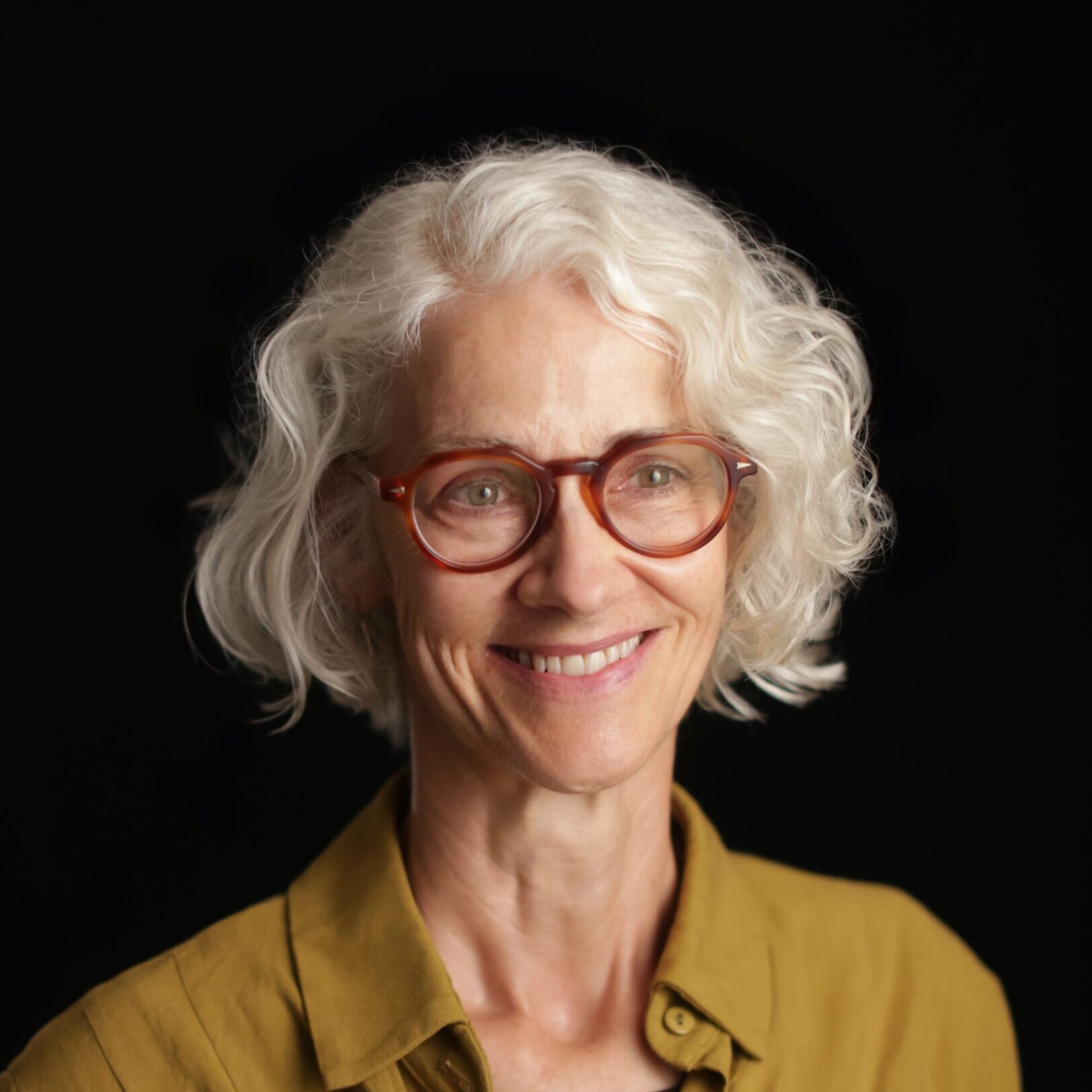
Dr. Elizabeth Vibert (she/her)
Professor, Department of History University of Victoria
Originally from the Sipekne’katik area of Mi’kma’ki (Nova Scotia), Elizabeth has taught at UVic since 1994. Her main research interests are food insecurity and food sovereignty, particularly in colonized spaces and in the era of climate crisis; colonialism; and the intersecting histories of poverty, gender, and race. She is the Principal Investigator on a SSHRC-funded, transnational and community-engaged research project to examine historical and contemporary causes of food crises, and powerful community-level responses, in four settings: South Africa, Colombia, Indigenous communities in southern and northern Canada, and refugee communities in Jordan. More details of this project, under the working title “Four Stories About Food Sovereignty: Transnational Crises and Local Action,” can be found at www.fourstoriesaboutfood.org/
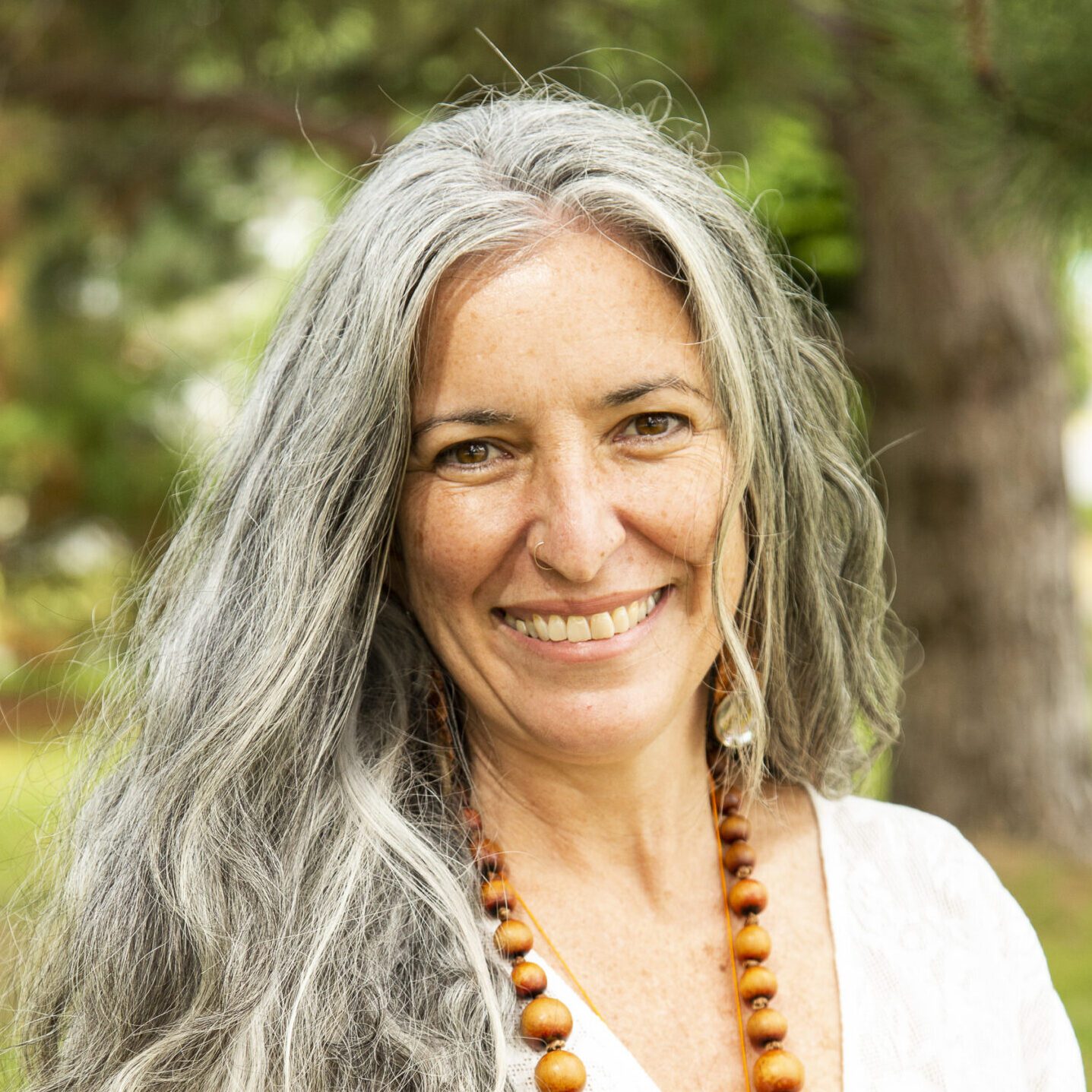
Astrid Perez Pinan (she/her)
Associate Professor
School of Public Administration
University of Victoria
Astrid Perez Pinan
Associate Professor
School of Public Administration
University of Victoria
Dr. Astrid Vanessa Pérez Piñán was born and raised in Puerto Rico. She is an Associate Professor at the School of Public Administration where she combines interdisciplinary research with feminist scholarship to critically explore the tensions between global development agendas and local realities, as well as the changing global development cooperation landscape, including recently adopted feminist policies. She is interested in the ‘measurement turn’ and indicators employed in global/local development. Astrid studies the processes leading to the creation of existing and emerging diverse economies that counter the neoliberal economic (dis)order at the community level (including and not limited to Indigenous and Afro-descendant communities).
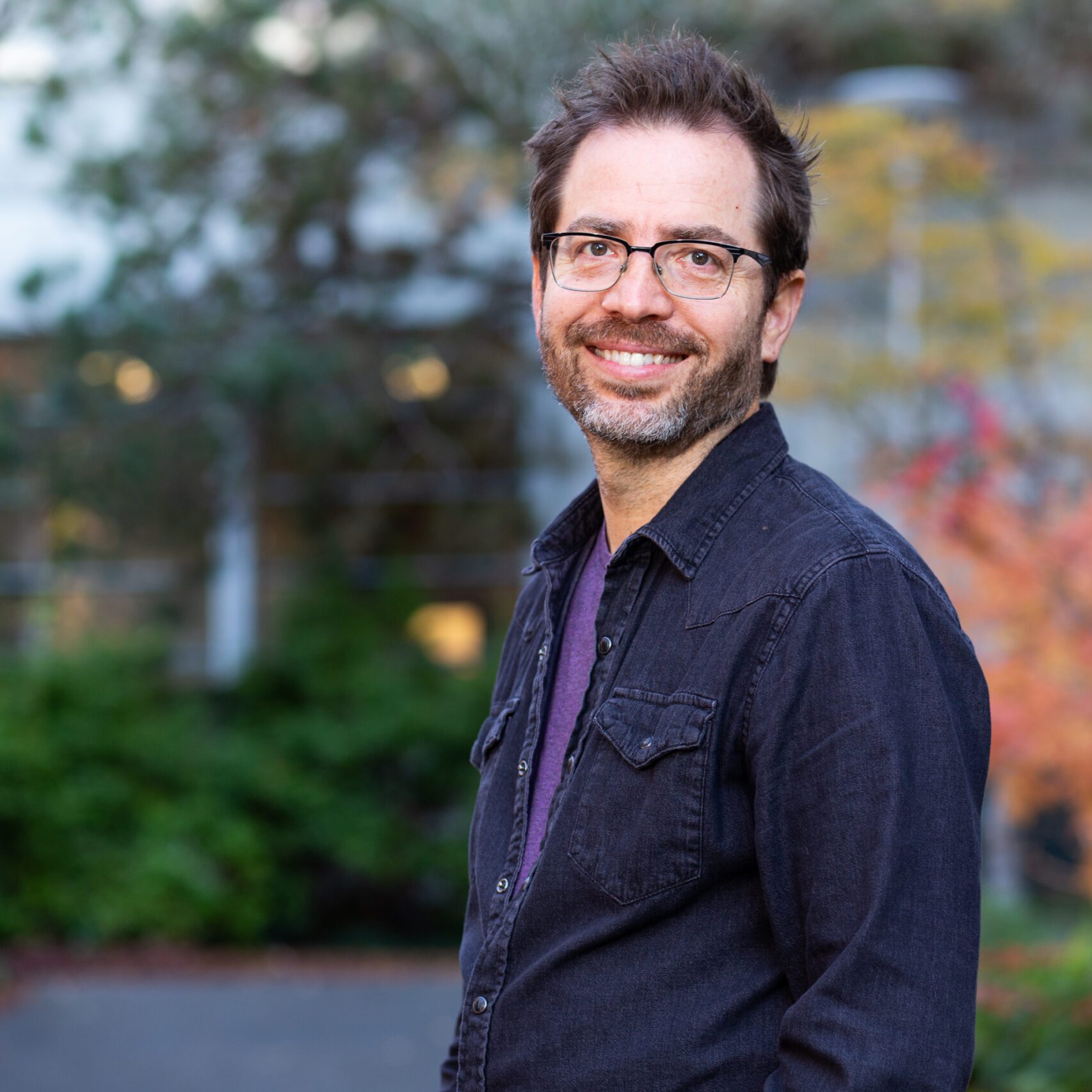
Brian Thom (he/him)
Associate Professor and Provost’s Engaged Scholar, Anthropology, Ethnographic Mapping Lab
University of Victoria
Brian Thom
Associate Professor and Provost’s Engaged Scholar, Anthropology, Ethnographic Mapping Lab
University of Victoria
Dr. Thom’s research focus is on the political, social and cultural processes that surround Indigenous people’s efforts to resolve Aboriginal title and rights claims and establish self-government. The research is community-driven and politically engaged in matters of contemporary social significance. In 2023, Dr. Thom was awarded Google’s Geo for Good Impact Award for his research and advocacy supporting Indigenous land rights. In 2022, he received the prestigious Leadership Victoria award for Extending Reconciliation. In 2021, Dr. Thom was named UVic’s Provost’s Engaged Scholar, an award recognizing excellence in Community-Engaged research and teaching. In 2020, he received the UVic Faculty of Social Sciences Outstanding Community Outreach Award.
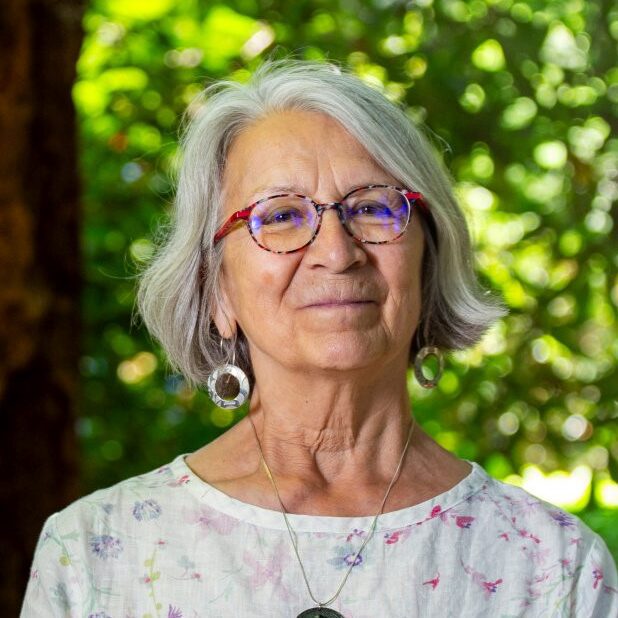
Val Napoleon (she/her)
Professor, Law Foundation Chair of Indigenous Justice and Governance, Faculty of Law
University of Victoria
Val Napoleon
Professor, Law Foundation Chair of Indigenous Justice and Governance, Faculty of Law, University of Victoria
Val is the Law Foundation Chair of Indigenous Justice and Governance. She is from northeast British Columbia (Treaty 8) and a member of Saulteau First Nation. She is also an adopted member of the Gitanyow (Gitksan) House of Luuxhon, Ganada (Frog) Clan. Prior to joining the Faculty of Law at UVic in 2012, she was cross-appointed with the faculties of Native Studies and Law at the University of Alberta. Val’s current research focuses on Indigenous legal traditions (Indigenous legal theories, pedagogies, law and precedent, legal institutions, and legal research methodologies), Indigenous feminism, citizenship, self-determination, and governance. Some of her major initiatives include the JD/JID (joint JD and Indigenous law degree) program, establishing the Indigenous Law Research Unit with a number of research partnerships with Indigenous communities and groups in BC, across Canada, and with international connections. Some of her projects include a two-year Indigenous/non-Indigenous water law research project, gender and Indigenous law, dispute resolution, Indigenous lands and resources, and human rights in Indigenous law.
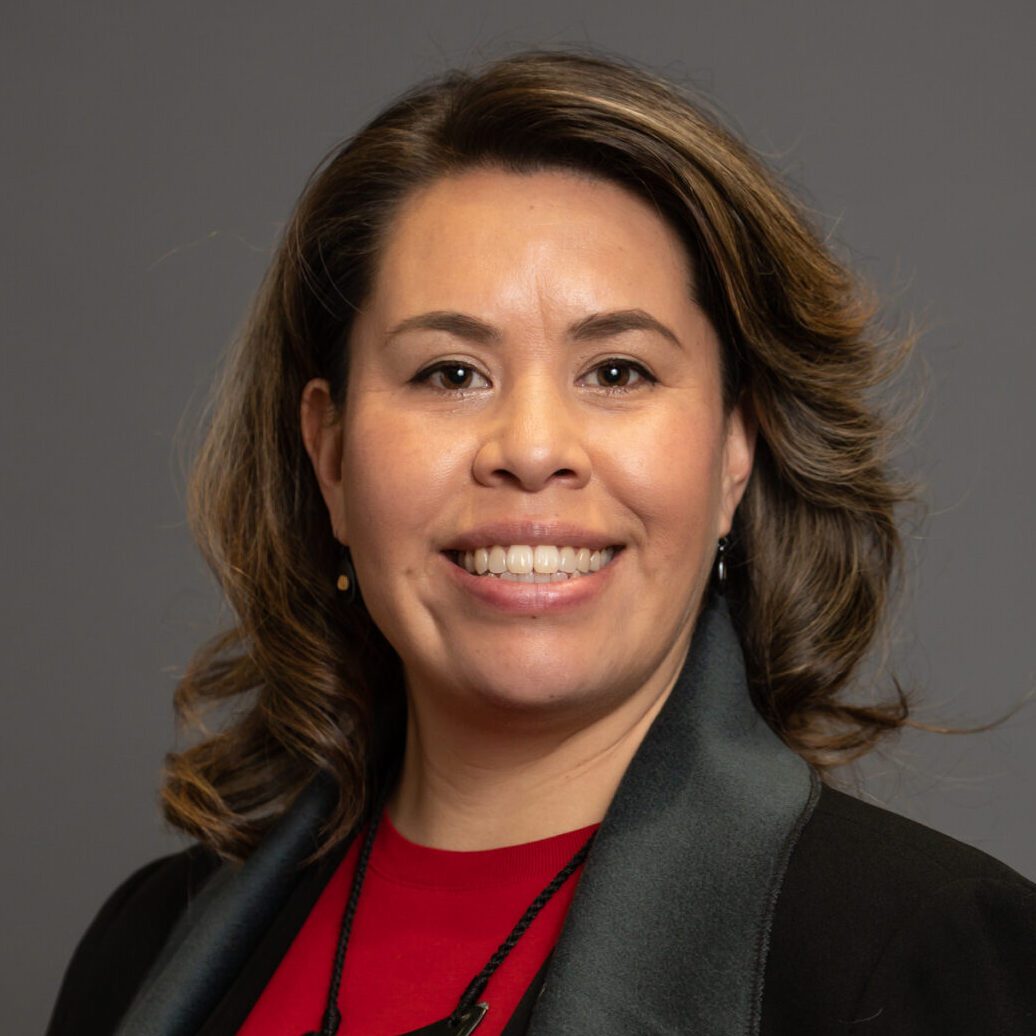
Dr. Dara Kelly (she/her)
Assistant Professor
Beedie School of Business
Simon Fraser University
Dr. Dara Kelly-Roy is from the Leq’á:mel First Nation, part of the Stó:lō Coast Salish. Her research priority areas include ethical Indigenous economies, community-engaged research, ontological diversity in management and organizational studies, ancestral leadership, and Indigenous economic well-being. In her research, Kelly-Roy responds to the need for Indigenous-led research grounded in Indigenous knowledge to realign the values of historical Indigenous economies with approaches to Indigenous economic development today and for future generations of Indigenous peoples. She is one of a handful of Indigenous scholars doing research in Indigenous business/management in Canada and part of a small group of Indigenous scholars globally. In 2020, Kelly-Roy was awarded an Early in Career Award by the Confederation of University Faculty Associations of (CUFA) BC. This distinguished academic award recognizes her outstanding work exploring and applying Indigenous knowledge systems to broaden understanding of economic issues impacting the wellbeing of local, national and international communities. Dr. Kelly-Roy is currently on the Advisory Committee for the Association for Economic Research for Indigenous Peoples (AERIP) and the Editorial Board of the Journal of Aboriginal Economic Development (JAED). She is interested in the ‘measurement turn’ and indicators employed in global/local development.
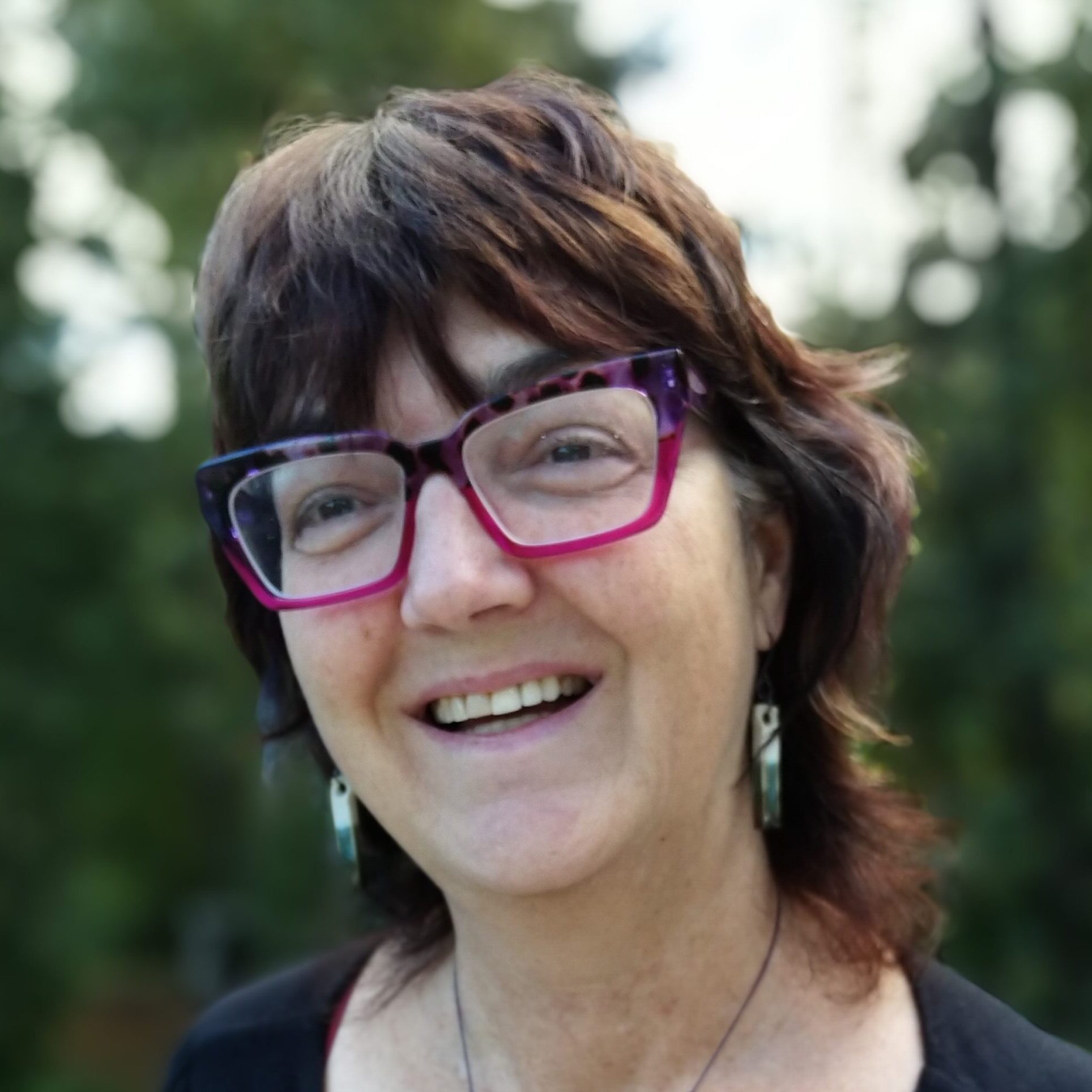
Rebecca Johnson (she/her)
Associate Director, Indigenous Law Research Unit, Faculty of Law
University of Victoria
Rebecca Johnson
Associate Director, Indigenous Law Research Unit, Faculty of Law University of Victoria
Professor Johnson joined the UVic Faculty of Law in 2001, after 6 years on the Faculty at the University of New Brunswick. Before that, she clerked for Madame Justice Claire L’Heureux-Dubé at the Supreme Court of Canada, and completed her LLM and SJD at the University of Michigan. The work there resulted in her award-winning book, Taxing Choices: the Intersection of Class, Gender, Parenthood and the Law.
Her research interests are marked by interdisciplinarity, and include storied pedagogy, law-and-film, Indigenous legal methodologies, judicial dissent, the economic imaginary, and critical feminisms. With an abiding interest in Canadian law-and-film scholarship, she has written on such topics as same-sex family formation, colonialism, dissent, mothers and babies in prison, cinematic violence, the Western, affect and emotion, and Inuit cinema. She co-edited a special issue of The Canadian Journal of Women and the Law on “Law, Film and Feminism”, and has a blog dedicated to the same. Professor Johnson’s internationally acknowledged collaborative work on judicial dissent with Professor Marie-Claire Belleau (University of Laval), has been published nationally and internationally in both French and English. Their work, funded by the Social Science and Humanities Research Council, has also been translated into Russian. Professor Johnson has also been working for several years on a number of initiatives with the Indigenous Legal Research Unit. She has also worked on the development of the TRC-inspired blog #ReconciliationSyllabus.
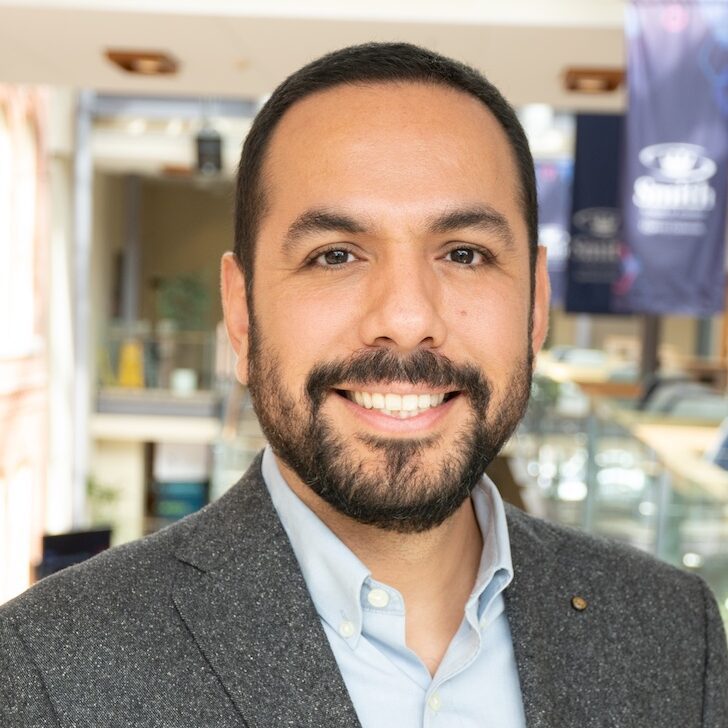
Juan Francisco Chavez Ramirez (he/him)
Assistant Professor
Smith School of Business
Queens University
Juan Francisco Chavez Ramirez
Assistant Professor
Smith School of Business
Queens University
Juan Francisco Chavez Ramirez is an Assistant Professor of Strategy and Organizations at the Smith School of Business, Queen’s University.
His research and teaching interests are situated at the intersection of sustainability, strategic management, and organizational theory. His primary focus revolves around the question of how businesses can create value, for both the organization and its stakeholders, in diverse and pluralistic contexts. Currently, Juan Francisco is engaged in research projects that aim to gain a deeper understanding of the processes by which social and environmental concerns become integrated into the institutional landscape that organizations navigate. He also investigates how business organizations respond to these concerns. Juan Francisco received his PhD from the Gustavson School of Business, at the University of Victoria. Before pursuing his doctorate, he worked for several years in various public and private organizations in leadership and consulting roles. He received his bachelor’s degree in social sciences from the Pontificia Universidad Catolica del Peru and his master’s degree in development studies from the Institute of Social Studies – Erasmus Rotterdam University.

Bradley Bryan (he/him)
Assistant Professor, Faculty of Law University of Victoria
Dr. Bradley Bryan is an Associate Professor in the Faculty of Law at UVic. He holds a BA (Hons) from UBC, an MA from McGill University, an LL.B from the University of Victoria, a PhD from Boalt Hall School of Law (UC Berkeley), and an LL.M (Taxation) from Allard Hall School of Law (UBC). Brad teaches and carries out research in First Nation fiscal relations, Taxation, Corporate law, Indigenous economic and legal orders, and maintains interests in postcolonialism and legal theory. He has co-authored work on Indigenous business structures and taxation of Indigenous peoples. Brad’s research is more fully represented via Brad’s Orcid ID and can be found in the University of Victoria’s digital works repository.
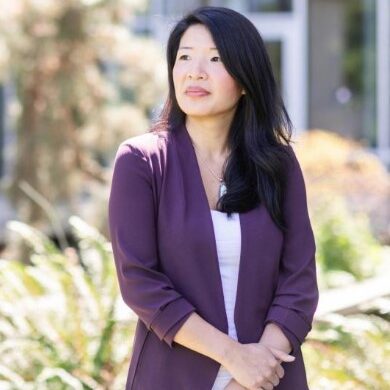
Dr. Carol Liao (she/her)
Associate Professor
Peter A. Allard School of Law
The University of British Columbia
Carol Liao
Associate Professor, Peter A. Allard School of Law, The University of British Columbia
Affiliation
Dr. Carol Liao is an Associate Professor at Allard Law and the UBC Sauder Distinguished Fellow of the Peter P. Dhillon Centre for Business Ethics at the UBC Sauder School of Business. Her research focuses on corporate law and sustainability, climate governance, and social justice. She is the Co-Director of the UBC Centre for Climate Justice and the Chair and Principal Co-Investigator of the Canada Climate Law Initiative. Dr. Liao is Principal Investigator of a SSHRC Insight Grant-funded empirical study on sustainable corporate governance and a UBC research excellence cluster member of the Future Minerals Initiative and Decision Insights for Business & Society. As Director of the Centre for Business Law from 2019-2023, she hosted over 125 professional and scholarly events on range of contemporary business topics and oversaw two experiential learning programs.
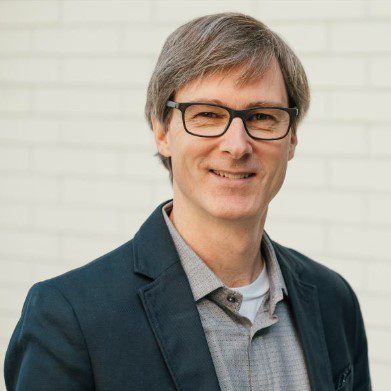
Stepan Wood (he/him)
Professor, Peter A. Allard School of Law
The University of British Columbia
Stepan Wood
Professor, Peter A. Allard School of Law, The University of British Columbia
Professor Stepan Wood’s research relates to sustainability, globalization, transnational governance, voluntary environmental standards, climate change, environmental law, corporate social responsibility and social justice. He holds the Canada Research Chair in Law, Society and Sustainability at the Allard School of Law, University of British Columbia, where he also directs the Centre for Law & the Environment. His current projects relate to the rights of nature, environmental rights, homelessness, the reception of English law in colonial British Columbia, and the future of the International Organization for Standardization.
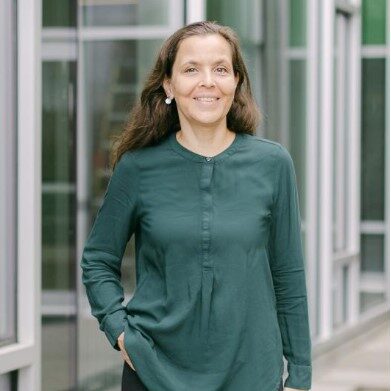
Andrea Hilland (she/her)
Assistant Professor
Peter A. Allard School of Law
The University of British Columbia
Andrea Hilland
Assistant Professor, Peter A. Allard School of Law, The University of British Columbia
Andrea Hilland, KC is a member of the Nuxalk Nation and an Assistant Professor at the Peter A. Allard School of Law. Her research examines the intersections of Indigenous laws, Aboriginal rights, and environmental regulation to challenge discriminatory theories of colonial supremacy and Indigenous inferiority that are perpetuated through the contemporary colonial legal system. Key objectives of her research are to support the resurgence of Indigenous laws and to demonstrate the potential of Indigenous laws to enhance Canada’s multi-juridical legal system. Professor Hilland has extensive experience in legal practice. Prior to entering academia, she advocated on behalf of First Nations to assert Aboriginal rights with respect to environmental issues, advised non-governmental organizations regarding Indigenous issues in the context of legal regulation, and was appointed King’s Counsel in 2021. She also served as Associate Director of Indigenous Legal Studies at Allard Law from 2008-2012.
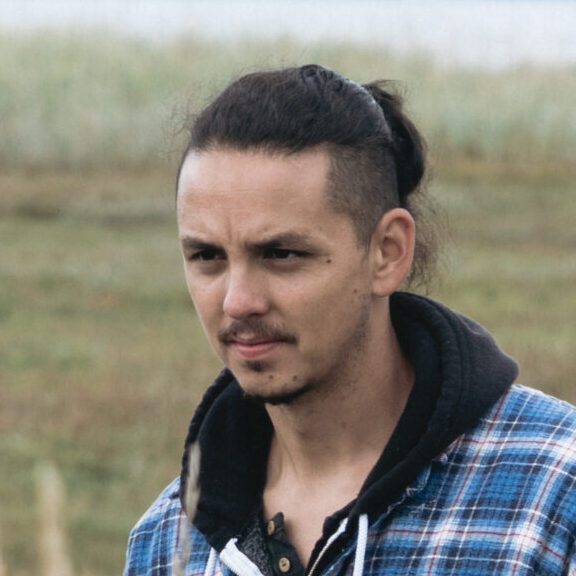
Robert Clifford (he/him)
Assistant Professor
Peter A. Allard School of Law
The University of British Columbia
Robert Clifford
Assistant Professor, Peter A. Allard School of Law, The University of British Columbia
Robert is WSÁNEĆ and a member of the Tsawout First Nation, his home community; he carries the name YELKATŦE, which was passed to him by his late grandfather, Earl Claxton Sr. His PhD research uses community participation methodologies to explore the ways WSÁNEĆ laws are generated by and reflect the values, philosophies, lands, and worldviews of the WSÁNEĆ people. The research is equally important in terms of practical application for the WSÁNEĆ community and as a contribution to theoretical understandings of what it means to responsibly engage WSÁNEĆ law, and Indigenous law more generally, within complex contemporary power structures and dynamics. Robert is actively involved in the academic and broader community. He has presented his work widely across academic and professional settings, speaking at community events as well. His publications cover a range of aspects relating to Indigenous law and Indigenous legal theory, including on legal pluralism, Indigenous language revitalization, and Indigenous spirituality. He has also taught in the JD program at the University of Victoria, most recently a field course in WSÁNEĆ law.
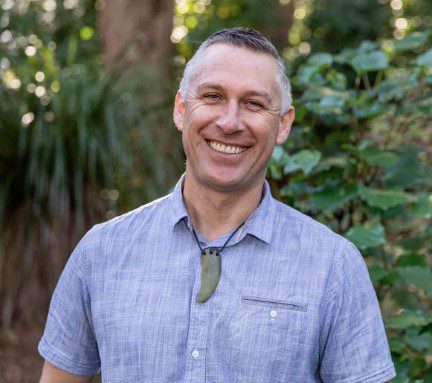
Maui Hudson
director, te kotahi research institute
The University of waikato
Maui is an interdisciplinary researcher and currently holds a position as the Director of the Te Kotahi Research Institute. He is a founding member of Te Mana Raraunga Māori Data Sovereignty Network and the Global Indigenous Data Alliance as well as a co-author of the CARE Principles for Indigenous Governance. Maui is Co-Director of Local Contexts and co-developer of the Biocultural Labels, as well as Co-Director of the Veracity Lab and ENRICH Equity for Indigenous Research and Innovation Coordinating Hub.
Community Partners
Creating capacity for informed decisions. Partners include 9 Indigenous Nations/organizations in British Columbia, Aotearoa (New Zealand) and Colombia.
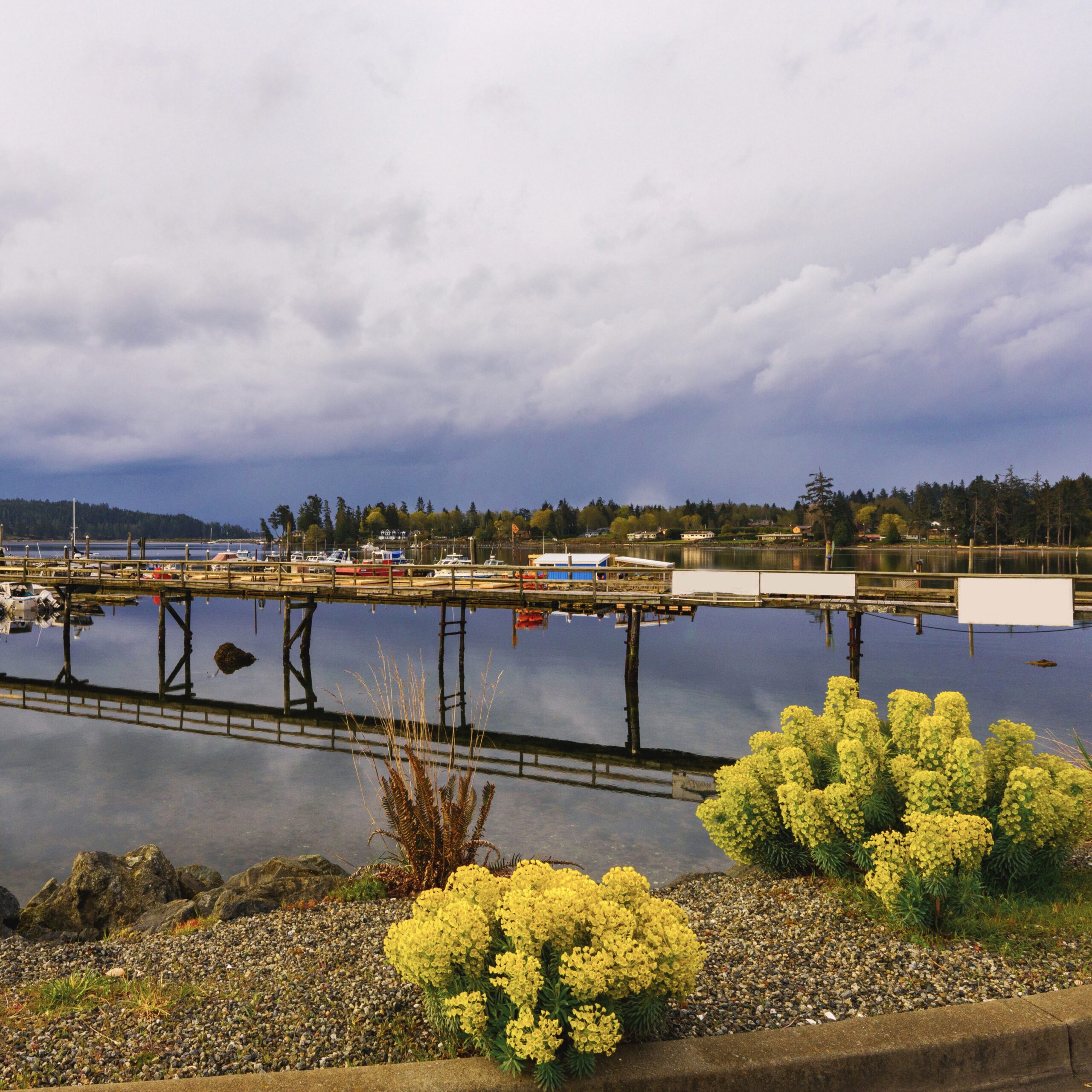
T-Sou-ke First Nation
The name “T’Sou-ke” is derived from the Sooke tribe of Straits Salishans. In the SENĆOŦEN language, T’Sou-ke is the name of the Stickleback fish that live in the estuary of the river. The Nation acts as stewards of the land to preserve and restore the Sooke Harbour and Basin to ensure its longevity for the generations who follow.
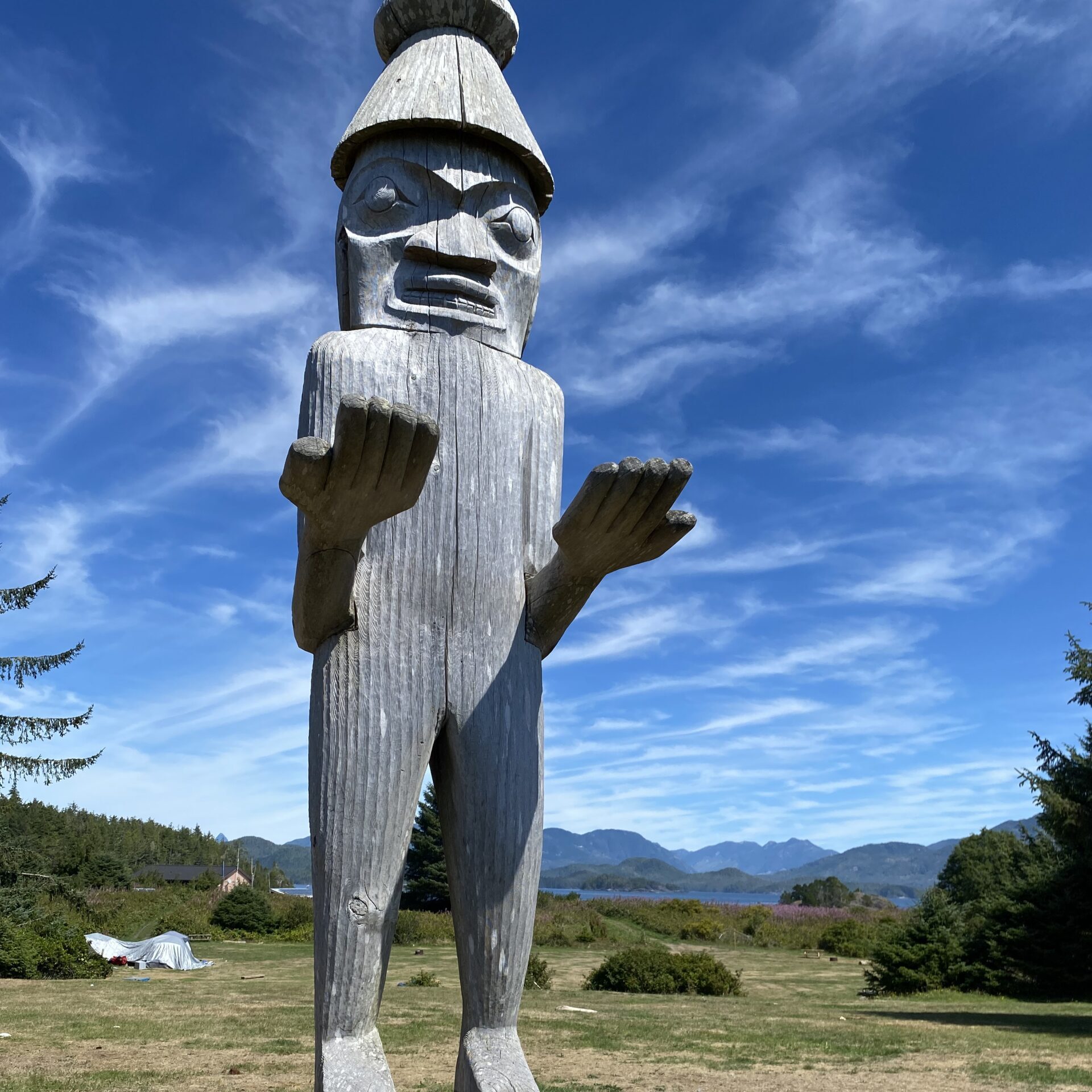
Mowachaht/Muchalaht First Nation
Mowachaht/Muchalaht First Nation is located on the west coast of Vancouver Island and has thrived for generations beyond recorded history, and was once a hub for commerce and cultural exchange. It is a community deeply connected to the land and sea, and committed to fostering reconciliation, understanding and mutual respect.
Students
Training the next generation of emerging scholars. Our student researchers generate reports explaining approaches to Indigenous governance of marine areas and park lands, conduct literature reviews, participate in community engagement, develop training materials, and mobilize knowledge from the research into instructional videos, academic publications, documentary films and other outputs.
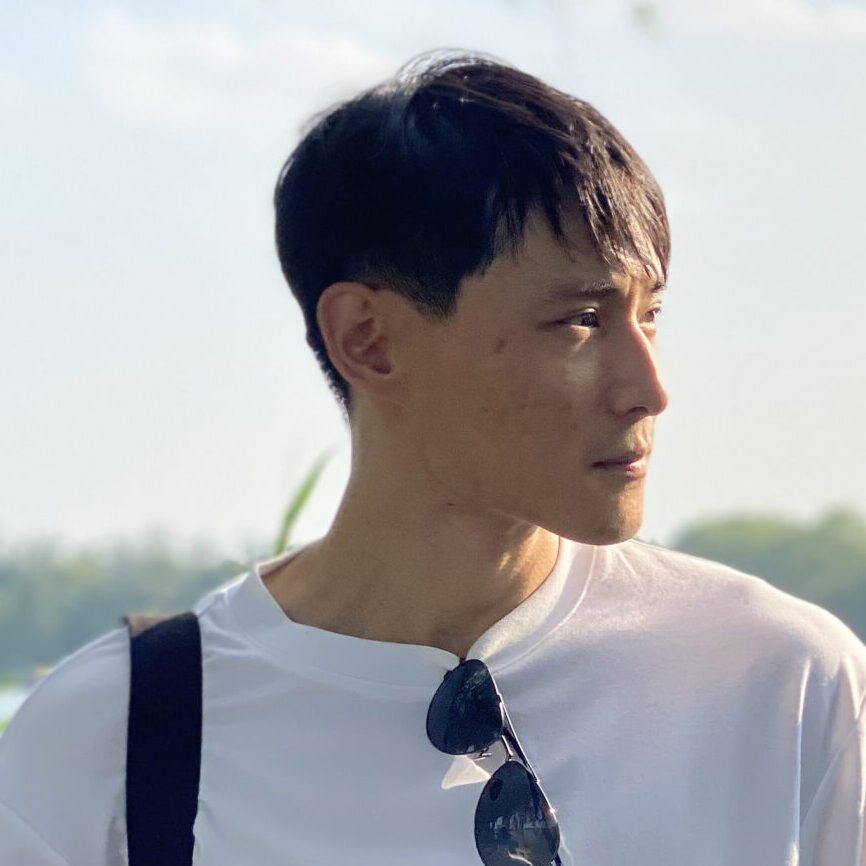
Guochen Wang (he/him)
PhD Candidate, Department of History, University of Victoria
Chen Wang was born in Mainland China and moved to Victoria in 2013 and worked on film and video productions since 2014. He is currently working on his PhD program focusing migration history and documentary films, teaching film courses at the University of Victoria.
As an international award-winning film director and cinematographer, Chen has worked on over 70 commercials, music videos, and documentary films, as well as on short and feature films screened at film festivals internationally.
Chen is the creator of the Balance Co-Lab informational video.
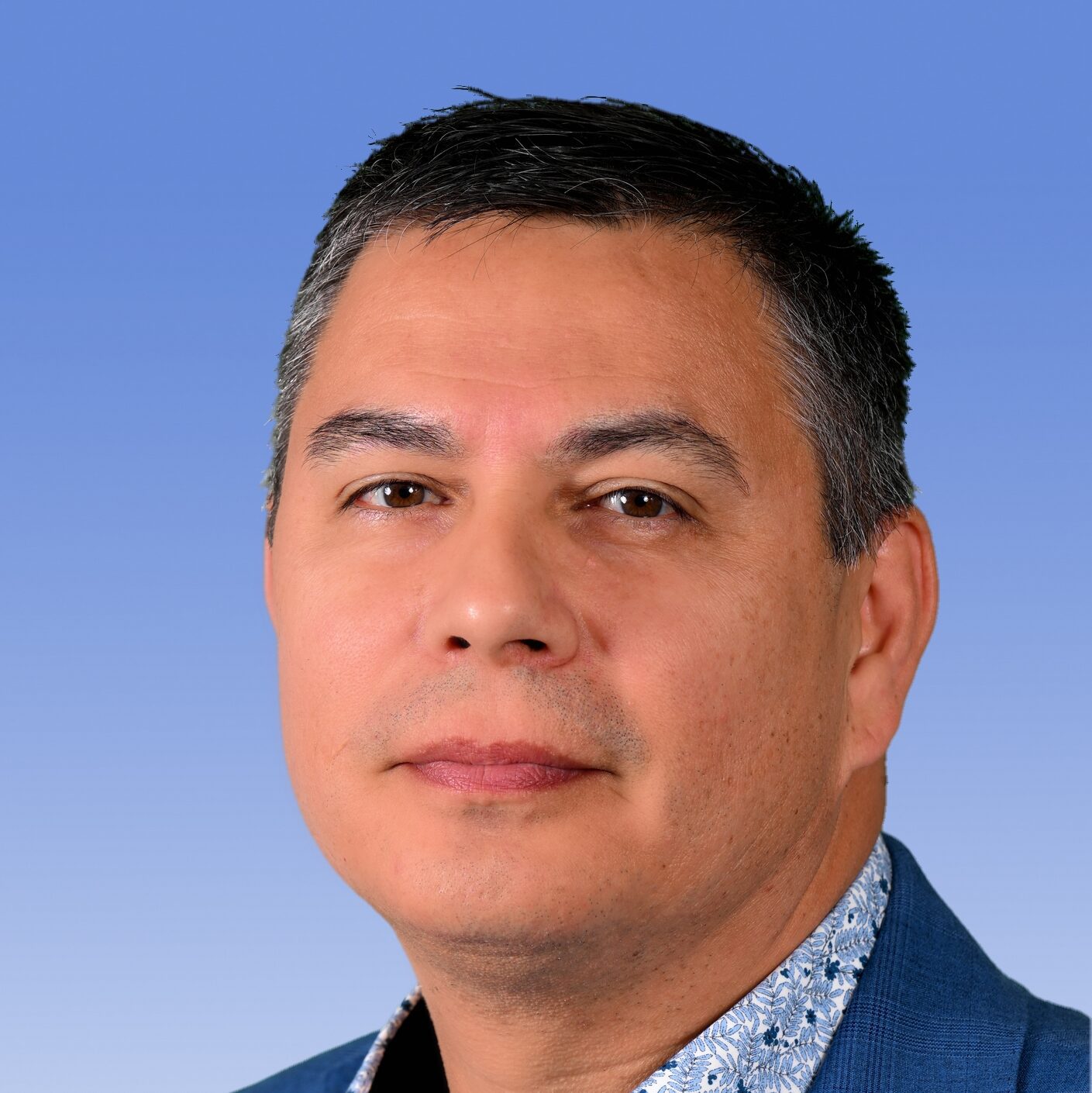
Lawrence Ignace (he/him)
PhD Candidate, School of Environmental Studies, University of Victoria
Lawrence Ignace is Anishinaabe from Lac Des Mille Lacs First Nation within Treaty 3 in Northwestern Ontario. He grew up in Ignace, Ontario named after his family. He holds a master’s in public administration with an emphasis on Natural Resources Policy from the University of Alaska Southeast. He is currently a PhD candidate at the University of Victoria and for the last 15 years has called Whitehorse, Yukon home. Over his career has held various positions with the Government of Canada, Province of Ontario, Assembly of First Nations, Carcross/Tagish First Nation, and the Government of Yukon.
He has a passion for advancing the understanding and use of Indigenous Knowledge. He is also the Vice Chair of Braiding Knowledges Canada, on the Reference group for the Appropriate Review of Indigenous Research and his research focuses on the intersection of differing ways of knowing in cumulative effects and natural resource management.
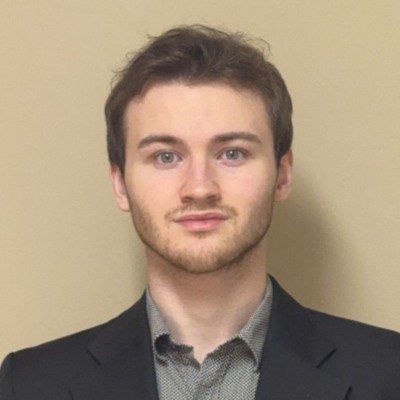
Riley Williams (he/him)
Undergraduate student in Sustainable Business, Beedie School of Business & faculty of environment, simon fraser university (sfu)
Riley Williams
Undergraduate student, Sustainable Business Joint Major Program, Simon Fraser University (SFU)
Riley Williams was born and raised on the unceded traditional territories of the Coast Salish peoples of the xʷməθkwəy̓əm (Musqueam), Skwxwú7mesh (Squamish), and Səl̓ílwətaɬ (Tsleil-Waututh) Nations, also known as Vancouver, BC. He is an undergraduate student in the Simon Fraser University (SFU) Sustainable Business Joint Major program, where he studies the dynamics of business and environmental management.
He is deeply engaged in research projects related to social inequities, Indigenous management, and sustainable business. He is a teaching assistant at SFU for the course “Business in a Sustainable Society” and engages in discussions about emerging sustainable business trends. His plans for graduate school are to further research social and environmental sustainability in business.
Program Team
Our Program Team includes a full-time Program Manager and three part-time Research Fellows who share a common purpose of contributing to meaningful projects that support environmental sustainability and advances Indigenous self-determination, community capacity and well-being.

Catherine Schafers (she/her)
Program Manager
Catherine is delighted to join the Balance Co-Lab team in her role as Program Manager. A settler of Irish and Scottish ancestry, she is grateful to reside and work on the traditional, ancestral, and unceded lands of the Lək̓ʷəŋən and WSÁNEĆ Peoples. With a background in business and project management, Catherine brings a wealth of knowledge and experience from her work on sustainability focused development projects in Canada and Mexico. Her proven ability to work collaboratively, creatively, and generously with all project participants transitions well and aligns with the goals of the Balance Co-Lab. Catherine strives to be an ally to First Nations through continuous learning, listening, and advocacy.

Justine Keefer (she/her)
PhD Fellow
Justine Keefer is a Dutch settler and a PhD candidate at the University of Victoria in the School of Environmental Studies Political Ecology lab. She was born in Treaty 2 territory and has spent the majority of her life living on Treaty 6 and 7 lands. She now resides on the unceded lands of the WSÁNEĆ peoples. Justine has experience working and engaging with provincial, federal and Indigenous governments from her time as a consultant with Calliou Group and as a policy analyst at the Metis Nation of Alberta. Her interests lie in understanding how cumulative effects assessment can be used as a tool to protect Nations rights.

Sydney Wanchulak (she/her)
Research Fellow
Sydney Wanchulak is a Cree Métis and Ukrainian from Treaty 6 territory in Alberta and a member of the Métis Nation of Alberta. She is currently working on her MBA at Gustavson School of Business at the University of Victoria. She has worked in the construction industry for a decade, ranging from onsite positions to Sustainability Manager. She has had the honour to lead corporate sustainability strategies, operations, and reporting, materiality assessments, and greenhouse gas accounting with a key focus on building relationships across organizations and industries. The values that lead her work are building connections, sharing knowledge, and having fun. Her curiosity lies at the intersection of sustainability, Indigenous knowledge and ways of being, and economies. Sydney thinks of the work she does as generational, and hopes to leave the world better than when she came into it.

Tricia Thomas (she/her)
Research Fellow
Tricia is an award-winning Indigenous entrepreneur, facilitator, speaker, consultant, and proud member of the Halalt (Xeláltxw) Nation on Vancouver Island where she lives and raises her two children. She is dedicated to advancing Indigenous self-determination through community engagement, strategy, facilitation, and implementation.
With an MBA in Sustainable Innovation from the University of Victoria, Tricia has contributed to significant projects, including Indigenous Early Learning in Child Care in BC, Regional Energy Resource Tables, and the BC Climate Aligned Energy Framework. She is the Founder and Principal of Tumuxw Communications, offering consultation on First Nation Rights and Title issues, and the Creative Director of Salish Eye Productions, producing award-winning Indigenous media.
As an Assistant Teaching Professor at UVic’s Gustavson School of Business, Tricia shares her knowledge on Indigenous entrepreneurship and collaboration with First Nations. She has been honoured with several awards, including the MBA Leadership/Citizenship Award.
At Balance Co-Lab, Tricia supports the development of Indigenous decision support and impact assessment systems, aiming to foster sustainable development and cultural integrity. She is grateful for the opportunity to contribute her expertise in facilitation, engagement, and sustainable innovation strategy to the team.

Tara Mahoney
Research associate
Tara Mahoney is a researcher based on the unceded traditional territories of the Coast Salish peoples of the xʷməθkwəy̓əm (Musqueam), Skwxwú7mesh (Squamish), and Səl̓ílwətaɬ (Tsleil-Waututh) Nations, also known as Vancouver, BC. She has extensive experience in designing community research programs and leading research projects that bridge academic and community-based knowledge. With over 15 years of experience in community organizing and a PhD in Communication from Simon Fraser University, Tara has published widely on community-engaged research and public engagement with climate issues.

Sherry Mattice
Research associate
Sherry taʔacinum Mattice is a member of the Mowachaht/Muchalaht First Nation located in the Nuu-chah-nulth territory on the west coast of Vancouver Island BC and is claimed by hereditary chief Nathan George. taʔacinum is the first person in her Nation to receive a Doctorate of Business Administration (specializing in Indigenous entrepreneurship and leadership). taʔacinum is passionate about language revitalization and currently is learning the northern Nuu-chah-nulth dialect. Sherry is a certified cultivating safe spaces (CSS) facilitator and uses CSS in her teaching practice.
Sherry has effectively collaborated with various stakeholders, including educational staff, community leaders, government officials and First Nation communities, to build strong connections and trust. This enables her to facilitate sharing knowledge, and co-create strategies and solutions tailored to the specific challenges and opportunities faced by Indigenous communities. A key aspect of her expertise is her ability to integrate traditional Indigenous knowledge and practices into the fabric of teaching, thus facilitating culturally relevant and innovative solutions. Sherry emphasizes decolonized practices, to enable participants to engage with Indigenous perspectives authentically and meaningfully.
Sherry received her traditional name taʔacinum (translates to big house beam or one who holds up the community) at a potlatch hosted by Late Ben Jack. taʔacinumhas been working in education for over 7 years as an advisor, instructor and mentor. taʔacinumis an assistant teaching professor for the Gustavson School of Business. Throughout her education journey she has contributed to mentorship and continues to be a mentor. taʔacinumis the oldest of 4 siblings with 3 children and one grandchild. Her husband Danny is from the Klahoose First Nation. Tyeesum’s mother survived the Christie and Alberni Indian residential school.

Lorenzo Magzul
Research associate
Lorenzo Magzul, a Kaqchikel Mayan from Guatemala, now lives and works on the traditional territories of the Lək̓ʷəŋən and WSÁNEĆ Peoples. With an academic background spanning Economics, Environmental Studies, and Integrated Studies of Land and Food Systems, he brings a wealth of experience in collaborating with Indigenous communities in Canada and Guatemala. His work focuses on advancing community development, strengthening food sovereignty, and fostering climate adaptation strategies that are both culturally informed and locally driven.

Marcela Faralhi Daolio (she/her)
Administrative and research support
Marcela is a Brazilian biologist with Italian, Syrian and Tupi-Guarani ancestry. Marcela is passionate about the marine environment and its ecological, spiritual and political importance to the coastal communities. She is currently working on her master’s thesis at the University of Victoria and has the privilege of working with Indigenous communities from what is known as British Columbia on adaptation planning and cumulative effects modelling of their food system. She is intersted in knowledge translation tools and integrative methods for conservation within communities and their marine ecosystems. She joins the team to work on the administrative organization background of the project and research support when needed.
University Partners
5 university-based partners in Canada, Columbia and Aoteraoa/New Zealand come together to co-create knowledge across academic disciplines and share decision-support processes for sustainable development in Indigenous communities.

Matt Murphy (he/him)
associate professor
gustavson school of business
university of victoria
Matt Murphy, an associate professor of sustainability and strategy at the Gustavson School of Business at the University of Victoria, teaches and carries out research in the areas of sustainability and social entrepreneurship. Matt is a settler of Irish, English and Scottish decent, and a 7th generation Texan raised on traditional territory of the Comanche and Kiowa Peoples. He currently resides on the traditional, ancestral, and unceded lands of the Lək̓ʷəŋən and W̱SÁNEĆ Peoples. Through collaboration and community-based action research, Matt works with Indigenous partners to co-develop decision support and (cumulative) impact assessment systems to further self-determination, stewardship, and economic development efforts.

Heynahmeek Johnny Mack (he/him)
assistant professor
peter a. allard school of LAW
the university of british columbia
Dr. Johnny Mack
Assistant Professor
Peter A. Allard School of Law
The University of British Columbia
Heynahmeek Johnny Mack is from the Toquaht Nation (Nuu-chah-nulth) and is Assistant Professor at UBC Allard School of Law. His research investigates the legal relationship between Indigenous and settler peoples in contemporary settler states, particularly Canada, as well as Indigenous constitutionalism, subjectivity, critical theory, and legal pluralism. An impassioned advocate for Indigenous peoples on the West Coast of Vancouver Island, Johnny’s involvement has been both formal, as a policy analyst for Aboriginal organizations, and informal, as a community activist working to create constructive critical dialogue on the subject of contemporary Treaty negotiations.

Unxiimtunaat Emily Salmon (she/her)
assistant professor
Beedie School of Business
simon fraser university
Unxiimtunaat Emily Salmon is a Cowichan Tribes citizen and an assistant professor at the Beedie School of Business. Her research explores how stakeholders enhance their well-being through relationships with external firms, particularly within the context of Indigenous communities and extractive projects in Canada. In addition, she investigates efforts to Indigenize business education, aiming to better incorporate Indigenous voices and practices in business classrooms and research. Beyond academia, her professional experience has encompassed various roles supporting Indigenous communities in their self-determination journeys, focusing on economic development, community governance, and human resources management.

Kēpa Morgan (he/him)
Mahi Maioro Professionals
Aotearoa (New Zealand)
Kēpa’s current research focuses on ecosystem impact assessment and empowering Iwi in relationships with regional and local government.
Kēpa developed the Mauri Model, a decision-making framework that combines a stakeholder assessment of worldviews, with an impact assessment of indicators to determine sustainability and trends over time. This framework uses the concept of mauri as the measure of sustainability, rather than the conventional monetary based assessment.
The Mauri Model measures mauri in four dimensions – environmental wellbeing (Taiao), cultural wellbeing (Hapū), social wellbeing (Hapori) and economic wellbeing (Whānau). Indicators are then chosen that represent the impacts upon mauri for each dimension.

Claudia Puerta Silva (she/her)
Professor, Social Anthropology & Ethnology, University of Antioquia, Colombia
Claudia Puerta Silva
Professor in Social Anthropology and Ethnology, University of Antioquia, Colombia

Deborah Curran (she/her)
Professor, Executive Director
Environmental Law Centre, Faculty of Law
University of Victoria
Deborah Curran
Executive Director, Environmental Law Centre, Faculty of Law
University of Victoria
Both in research and practice, Deborah is engaged in the subjects of water and regional or watershed sustainability. Flowing through all of her research is an interest in how legal and policy structures facilitate or impede us from adapting to changing ecological conditions, and shape decision-making through governance processes. Adaptive governance assists us to respond to socioecological conditions, and law – indigenous, customary community, municipal, provincial and federal – plays a foundational role in how well any watershed community responds over time or to specific events.

Crystal Tremblay (she/her)
Director, CIVAL Victoria
University of Victoria
Crystal Tremblay is a social geographer and community-based scholar with interest in the areas of environmental sustainability, participatory resource governance and critical pedagogy. She specializes in using participatory video and arts-based methods for creative citizen engagement and the co-creation of knowledge leading to environmental and social equity. In her capacity as Special Advisor on Community Engaged Scholarship, she provides leadership and research in support of UVic’s community engagement portfolio. She has published widely on topics related to community university research partnerships, training in community-based research, social innovation and participatory policy in water and waste governance.

Dr. Natalie Ban (she/her)
Professor & President’s Chair
School of Environmental Studies
University of Victoria
Natalie Ban
Professor and President’s Chair
School of Environmental Studies University of Victoria
Natalie joined the School of Environmental Studies in January 2013. Trained in geography, resource management and environmental studies, Natalie’s research is at the forefront of seeking solutions to contemporary challenges related to marine conservation and fisheries. Her research embraces multiple perspectives, diversities of solutions, and ways of knowing. Her team’s research priorities are shaped by the research needs and opportunities of partners, especially First Nations. Her research team is comprised of researchers who are passionate about making a difference in our oceans and coastal ecosystems through research and community engagement. The work focuses on coastal and marine conservation and social-ecological systems, and integrates natural and social sciences, and braids together western and Indigenous knowledges when appropriate and led by Indigenous partners.

Dr. Elizabeth Vibert (she/her)
Professor, Department of History University of Victoria
Originally from the Sipekne’katik area of Mi’kma’ki (Nova Scotia), Elizabeth has taught at UVic since 1994. Her main research interests are food insecurity and food sovereignty, particularly in colonized spaces and in the era of climate crisis; colonialism; and the intersecting histories of poverty, gender, and race. She is the Principal Investigator on a SSHRC-funded, transnational and community-engaged research project to examine historical and contemporary causes of food crises, and powerful community-level responses, in four settings: South Africa, Colombia, Indigenous communities in southern and northern Canada, and refugee communities in Jordan. More details of this project, under the working title “Four Stories About Food Sovereignty: Transnational Crises and Local Action,” can be found at www.fourstoriesaboutfood.org/

Astrid Perez Pinan (she/her)
Associate Professor
School of Public Administration
University of Victoria
Astrid Perez Pinan
Associate Professor
School of Public Administration
University of Victoria
Dr. Astrid Vanessa Pérez Piñán was born and raised in Puerto Rico. She is an Associate Professor at the School of Public Administration where she combines interdisciplinary research with feminist scholarship to critically explore the tensions between global development agendas and local realities, as well as the changing global development cooperation landscape, including recently adopted feminist policies. She is interested in the ‘measurement turn’ and indicators employed in global/local development. Astrid studies the processes leading to the creation of existing and emerging diverse economies that counter the neoliberal economic (dis)order at the community level (including and not limited to Indigenous and Afro-descendant communities).

Brian Thom (he/him)
Associate Professor and Provost’s Engaged Scholar, Anthropology, Ethnographic Mapping Lab
University of Victoria
Brian Thom
Associate Professor and Provost’s Engaged Scholar, Anthropology, Ethnographic Mapping Lab
University of Victoria
Dr. Thom’s research focus is on the political, social and cultural processes that surround Indigenous people’s efforts to resolve Aboriginal title and rights claims and establish self-government. The research is community-driven and politically engaged in matters of contemporary social significance. In 2023, Dr. Thom was awarded Google’s Geo for Good Impact Award for his research and advocacy supporting Indigenous land rights. In 2022, he received the prestigious Leadership Victoria award for Extending Reconciliation. In 2021, Dr. Thom was named UVic’s Provost’s Engaged Scholar, an award recognizing excellence in Community-Engaged research and teaching. In 2020, he received the UVic Faculty of Social Sciences Outstanding Community Outreach Award.

Val Napoleon (she/her)
Professor, Law Foundation Chair of Indigenous Justice and Governance, Faculty of Law
University of Victoria
Val Napoleon
Professor, Law Foundation Chair of Indigenous Justice and Governance, Faculty of Law, University of Victoria
Val is the Law Foundation Chair of Indigenous Justice and Governance. She is from northeast British Columbia (Treaty 8) and a member of Saulteau First Nation. She is also an adopted member of the Gitanyow (Gitksan) House of Luuxhon, Ganada (Frog) Clan. Prior to joining the Faculty of Law at UVic in 2012, she was cross-appointed with the faculties of Native Studies and Law at the University of Alberta. Val’s current research focuses on Indigenous legal traditions (Indigenous legal theories, pedagogies, law and precedent, legal institutions, and legal research methodologies), Indigenous feminism, citizenship, self-determination, and governance. Some of her major initiatives include the JD/JID (joint JD and Indigenous law degree) program, establishing the Indigenous Law Research Unit with a number of research partnerships with Indigenous communities and groups in BC, across Canada, and with international connections. Some of her projects include a two-year Indigenous/non-Indigenous water law research project, gender and Indigenous law, dispute resolution, Indigenous lands and resources, and human rights in Indigenous law.

Dr. Dara Kelly (she/her)
Assistant Professor
Beedie School of Business
Simon Fraser University
Dr. Dara Kelly-Roy is from the Leq’á:mel First Nation, part of the Stó:lō Coast Salish. Her research priority areas include ethical Indigenous economies, community-engaged research, ontological diversity in management and organizational studies, ancestral leadership, and Indigenous economic well-being. In her research, Kelly-Roy responds to the need for Indigenous-led research grounded in Indigenous knowledge to realign the values of historical Indigenous economies with approaches to Indigenous economic development today and for future generations of Indigenous peoples. She is one of a handful of Indigenous scholars doing research in Indigenous business/management in Canada and part of a small group of Indigenous scholars globally. In 2020, Kelly-Roy was awarded an Early in Career Award by the Confederation of University Faculty Associations of (CUFA) BC. This distinguished academic award recognizes her outstanding work exploring and applying Indigenous knowledge systems to broaden understanding of economic issues impacting the wellbeing of local, national and international communities. Dr. Kelly-Roy is currently on the Advisory Committee for the Association for Economic Research for Indigenous Peoples (AERIP) and the Editorial Board of the Journal of Aboriginal Economic Development (JAED). She is interested in the ‘measurement turn’ and indicators employed in global/local development.

Rebecca Johnson (she/her)
Associate Director, Indigenous Law Research Unit, Faculty of Law
University of Victoria
Rebecca Johnson
Associate Director, Indigenous Law Research Unit, Faculty of Law University of Victoria
Professor Johnson joined the UVic Faculty of Law in 2001, after 6 years on the Faculty at the University of New Brunswick. Before that, she clerked for Madame Justice Claire L’Heureux-Dubé at the Supreme Court of Canada, and completed her LLM and SJD at the University of Michigan. The work there resulted in her award-winning book, Taxing Choices: the Intersection of Class, Gender, Parenthood and the Law.
Her research interests are marked by interdisciplinarity, and include storied pedagogy, law-and-film, Indigenous legal methodologies, judicial dissent, the economic imaginary, and critical feminisms. With an abiding interest in Canadian law-and-film scholarship, she has written on such topics as same-sex family formation, colonialism, dissent, mothers and babies in prison, cinematic violence, the Western, affect and emotion, and Inuit cinema. She co-edited a special issue of The Canadian Journal of Women and the Law on “Law, Film and Feminism”, and has a blog dedicated to the same. Professor Johnson’s internationally acknowledged collaborative work on judicial dissent with Professor Marie-Claire Belleau (University of Laval), has been published nationally and internationally in both French and English. Their work, funded by the Social Science and Humanities Research Council, has also been translated into Russian. Professor Johnson has also been working for several years on a number of initiatives with the Indigenous Legal Research Unit. She has also worked on the development of the TRC-inspired blog #ReconciliationSyllabus.

Juan Francisco Chavez Ramirez (he/him)
Assistant Professor
Smith School of Business
Queens University
Juan Francisco Chavez Ramirez
Assistant Professor
Smith School of Business
Queens University
Juan Francisco Chavez Ramirez is an Assistant Professor of Strategy and Organizations at the Smith School of Business, Queen’s University.
His research and teaching interests are situated at the intersection of sustainability, strategic management, and organizational theory. His primary focus revolves around the question of how businesses can create value, for both the organization and its stakeholders, in diverse and pluralistic contexts. Currently, Juan Francisco is engaged in research projects that aim to gain a deeper understanding of the processes by which social and environmental concerns become integrated into the institutional landscape that organizations navigate. He also investigates how business organizations respond to these concerns. Juan Francisco received his PhD from the Gustavson School of Business, at the University of Victoria. Before pursuing his doctorate, he worked for several years in various public and private organizations in leadership and consulting roles. He received his bachelor’s degree in social sciences from the Pontificia Universidad Catolica del Peru and his master’s degree in development studies from the Institute of Social Studies – Erasmus Rotterdam University.

Bradley Bryan (he/him)
Assistant Professor, Faculty of Law University of Victoria
Dr. Bradley Bryan is an Associate Professor in the Faculty of Law at UVic. He holds a BA (Hons) from UBC, an MA from McGill University, an LL.B from the University of Victoria, a PhD from Boalt Hall School of Law (UC Berkeley), and an LL.M (Taxation) from Allard Hall School of Law (UBC). Brad teaches and carries out research in First Nation fiscal relations, Taxation, Corporate law, Indigenous economic and legal orders, and maintains interests in postcolonialism and legal theory. He has co-authored work on Indigenous business structures and taxation of Indigenous peoples. Brad’s research is more fully represented via Brad’s Orcid ID and can be found in the University of Victoria’s digital works repository.

Dr. Carol Liao (she/her)
Associate Professor
Peter A. Allard School of Law
The University of British Columbia
Carol Liao
Associate Professor, Peter A. Allard School of Law, The University of British Columbia
Affiliation
Dr. Carol Liao is an Associate Professor at Allard Law and the UBC Sauder Distinguished Fellow of the Peter P. Dhillon Centre for Business Ethics at the UBC Sauder School of Business. Her research focuses on corporate law and sustainability, climate governance, and social justice. She is the Co-Director of the UBC Centre for Climate Justice and the Chair and Principal Co-Investigator of the Canada Climate Law Initiative. Dr. Liao is Principal Investigator of a SSHRC Insight Grant-funded empirical study on sustainable corporate governance and a UBC research excellence cluster member of the Future Minerals Initiative and Decision Insights for Business & Society. As Director of the Centre for Business Law from 2019-2023, she hosted over 125 professional and scholarly events on range of contemporary business topics and oversaw two experiential learning programs.

Stepan Wood (he/him)
Professor, Peter A. Allard School of Law
The University of British Columbia
Stepan Wood
Professor, Peter A. Allard School of Law, The University of British Columbia
Professor Stepan Wood’s research relates to sustainability, globalization, transnational governance, voluntary environmental standards, climate change, environmental law, corporate social responsibility and social justice. He holds the Canada Research Chair in Law, Society and Sustainability at the Allard School of Law, University of British Columbia, where he also directs the Centre for Law & the Environment. His current projects relate to the rights of nature, environmental rights, homelessness, the reception of English law in colonial British Columbia, and the future of the International Organization for Standardization.

Andrea Hilland (she/her)
Assistant Professor
Peter A. Allard School of Law
The University of British Columbia
Andrea Hilland
Assistant Professor, Peter A. Allard School of Law, The University of British Columbia
Andrea Hilland, KC is a member of the Nuxalk Nation and an Assistant Professor at the Peter A. Allard School of Law. Her research examines the intersections of Indigenous laws, Aboriginal rights, and environmental regulation to challenge discriminatory theories of colonial supremacy and Indigenous inferiority that are perpetuated through the contemporary colonial legal system. Key objectives of her research are to support the resurgence of Indigenous laws and to demonstrate the potential of Indigenous laws to enhance Canada’s multi-juridical legal system. Professor Hilland has extensive experience in legal practice. Prior to entering academia, she advocated on behalf of First Nations to assert Aboriginal rights with respect to environmental issues, advised non-governmental organizations regarding Indigenous issues in the context of legal regulation, and was appointed King’s Counsel in 2021. She also served as Associate Director of Indigenous Legal Studies at Allard Law from 2008-2012.

Robert Clifford (he/him)
Assistant Professor
Peter A. Allard School of Law
The University of British Columbia
Robert Clifford
Assistant Professor, Peter A. Allard School of Law, The University of British Columbia
Robert is WSÁNEĆ and a member of the Tsawout First Nation, his home community; he carries the name YELKATŦE, which was passed to him by his late grandfather, Earl Claxton Sr. His PhD research uses community participation methodologies to explore the ways WSÁNEĆ laws are generated by and reflect the values, philosophies, lands, and worldviews of the WSÁNEĆ people. The research is equally important in terms of practical application for the WSÁNEĆ community and as a contribution to theoretical understandings of what it means to responsibly engage WSÁNEĆ law, and Indigenous law more generally, within complex contemporary power structures and dynamics. Robert is actively involved in the academic and broader community. He has presented his work widely across academic and professional settings, speaking at community events as well. His publications cover a range of aspects relating to Indigenous law and Indigenous legal theory, including on legal pluralism, Indigenous language revitalization, and Indigenous spirituality. He has also taught in the JD program at the University of Victoria, most recently a field course in WSÁNEĆ law.

Maui Hudson
director, te kotahi research institute
The University of waikato
Maui is an interdisciplinary researcher and currently holds a position as the Director of the Te Kotahi Research Institute. He is a founding member of Te Mana Raraunga Māori Data Sovereignty Network and the Global Indigenous Data Alliance as well as a co-author of the CARE Principles for Indigenous Governance. Maui is Co-Director of Local Contexts and co-developer of the Biocultural Labels, as well as Co-Director of the Veracity Lab and ENRICH Equity for Indigenous Research and Innovation Coordinating Hub.
Community Partners
Creating capacity for informed decisions. Partners include 7 Indigenous Nations/organizations in British Columbia, Aotearoa/New Zealand and Columbia.

T-Sou-ke First Nation
The name “T’Sou-ke” is derived from the Sooke tribe of Straits Salishans. In the SENĆOŦEN language, T’Sou-ke is the name of the Stickleback fish that live in the estuary of the river. The Nation acts as stewards of the land to preserve and restore the Sooke Harbour and Basin to ensure its longevity for the generations who follow.

Mowachaht/Muchalaht First Nation
Mowachaht/Muchalaht First Nation is located on the west coast of Vancouver Island and has thrived for generations beyond recorded history, and was once a hub for commerce and cultural exchange. It is a community deeply connected to the land and sea, and committed to fostering reconciliation, understanding and mutual respect.
Students
Training the next generation of emerging scholars. Our student researchers generate reports explaining approaches to Indigenous governance of marine areas and park lands, conduct literature reviews, participate in community engagement, develop training materials, and mobilize knowledge from the research into instructional videos, academic publications, documentary films and other outputs.

Guochen Wang (he/him)
PhD Candidate, Department of History, University of Victoria
Chen Wang was born in Mainland China and moved to Victoria in 2013 and worked on film and video productions since 2014. He is currently working on his PhD program focusing migration history and documentary films, teaching film courses at the University of Victoria.
As an international award-winning film director and cinematographer, Chen has worked on over 70 commercials, music videos, and documentary films, as well as on short and feature films screened at film festivals internationally.
Chen is the creator of the Balance Co-Lab informational video.

Lawrence Ignace (he/him)
PhD Candidate, School of Environmental Studies, University of Victoria
Lawrence Ignace is Anishinaabe from Lac Des Mille Lacs First Nation within Treaty 3 in Northwestern Ontario. He grew up in Ignace, Ontario named after his family. He holds a master’s in public administration with an emphasis on Natural Resources Policy from the University of Alaska Southeast. He is currently a PhD candidate at the University of Victoria and for the last 15 years has called Whitehorse, Yukon home. Over his career has held various positions with the Government of Canada, Province of Ontario, Assembly of First Nations, Carcross/Tagish First Nation, and the Government of Yukon.
He has a passion for advancing the understanding and use of Indigenous Knowledge. He is also the Vice Chair of Braiding Knowledges Canada, on the Reference group for the Appropriate Review of Indigenous Research and his research focuses on the intersection of differing ways of knowing in cumulative effects and natural resource management.

Riley Williams (he/him)
Undergraduate student in Sustainable Business, Beedie School of Business & faculty of environment, simon fraser university (sfu)
Riley Williams
Undergraduate student, Sustainable Business Joint Major Program, Simon Fraser University (SFU)
Riley Williams was born and raised on the unceded traditional territories of the Coast Salish peoples of the xʷməθkwəy̓əm (Musqueam), Skwxwú7mesh (Squamish), and Səl̓ílwətaɬ (Tsleil-Waututh) Nations, also known as Vancouver, BC. He is an undergraduate student in the Simon Fraser University (SFU) Sustainable Business Joint Major program, where he studies the dynamics of business and environmental management.
He is deeply engaged in research projects related to social inequities, Indigenous management, and sustainable business. He is a teaching assistant at SFU for the course “Business in a Sustainable Society” and engages in discussions about emerging sustainable business trends. His plans for graduate school are to further research social and environmental sustainability in business.
Contact Us
Provide as much detail as you can, and a Balance Co-Lab team member will contact you to find out more about how we can support your community’s goals.
Get in Touch